Emotional Health Recognized as Vital Component of JDM Care
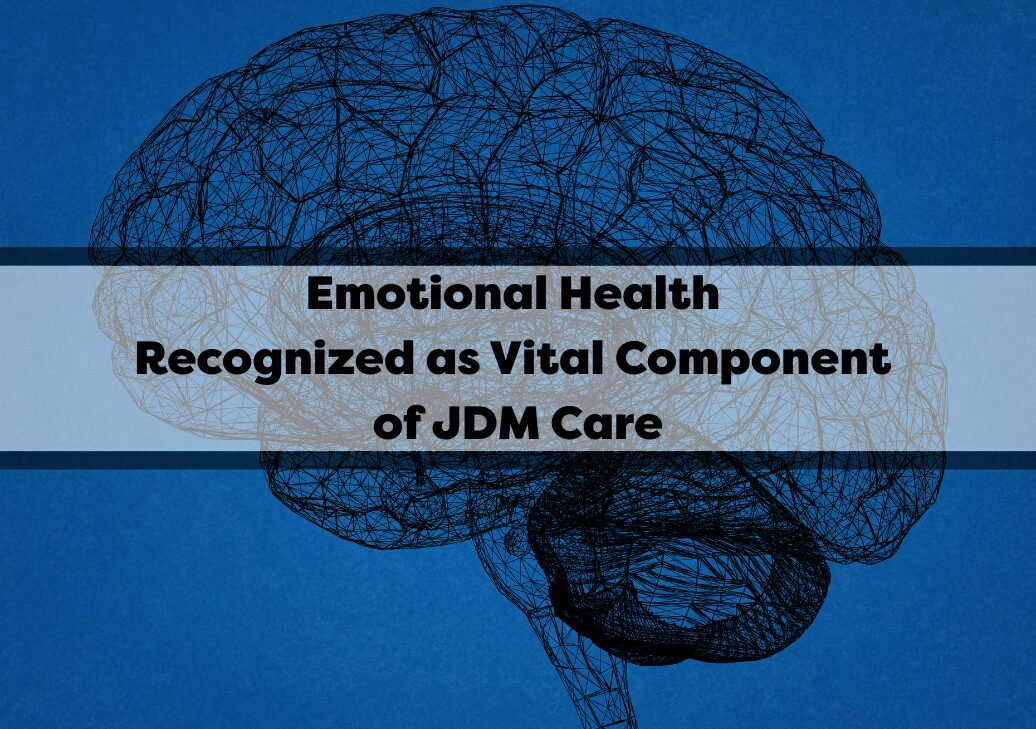
Caring for a child with juvenile myositis (JM) goes beyond managing flares and medications—it means supporting their whole well-being, including mental and emotional health. Research shows that children with chronic illnesses like JM are at a significantly higher risk for anxiety, depression, and emotional distress. These challenges can affect not just day-to-day life, but also treatment outcomes and long-term health
Cure JM Researcher Zeroing In on Why Inflammation Rages—and Muscles Don’t Heal

Cure JM is proud to fund pioneering research by Dr. Sara Sabbagh at the University of Wisconsin, who is working to solve one of the most urgent mysteries in juvenile myositis (JM). Why does inflammation spiral out of control — and why can’t muscles bounce back like they should
What is Juvenile Myositis?
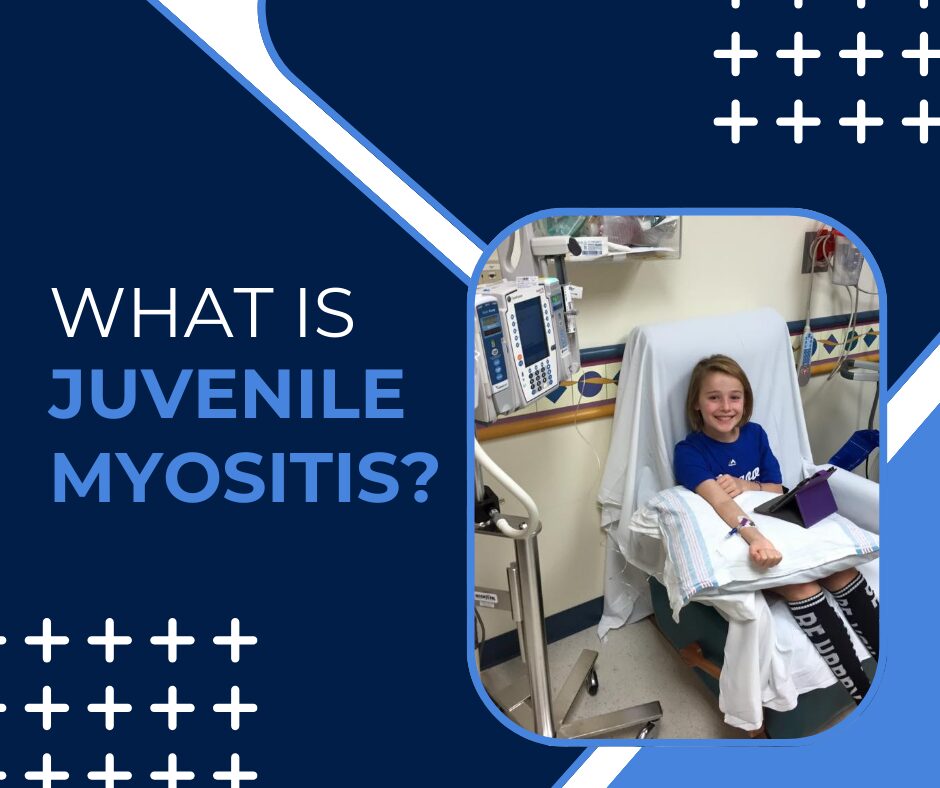
Juvenile myositis, including juvenile dermatomyositis and juvenile polymyositis, is a group of rare and life-threatening autoimmune diseases, in which the body’s immune system attacks its own cells and tissues.
Understanding Second-Line Treatments and Side Effects
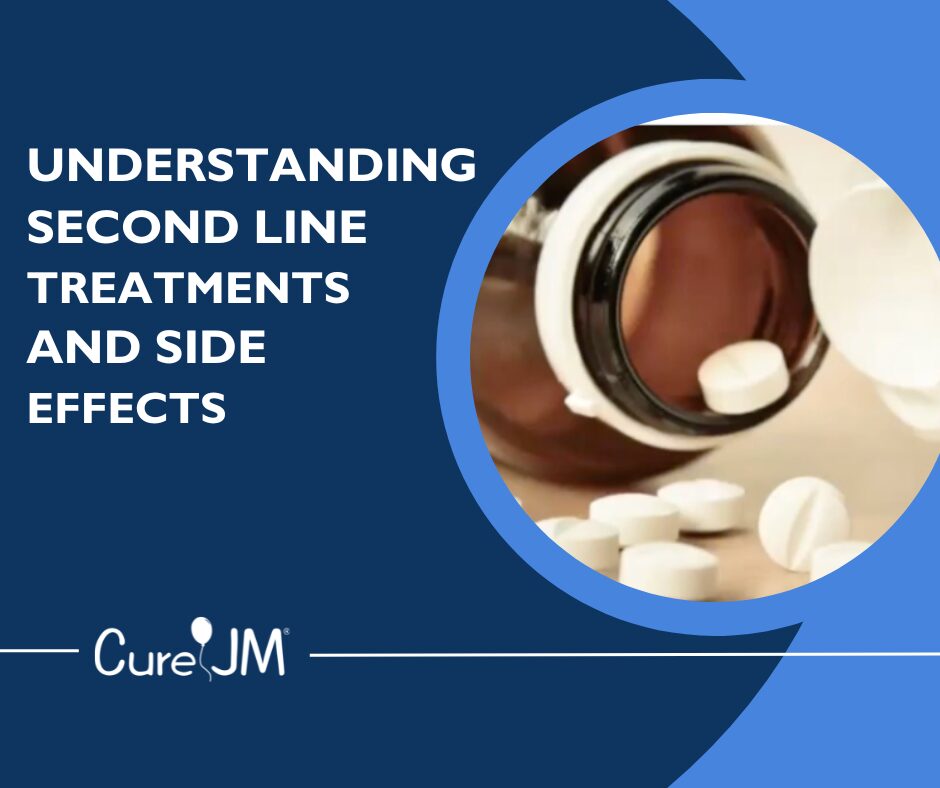
Second-line treatments refer to options beyond steroids and methotrexate. They are designed to manage JM while reducing reliance on those medications. We understand that adding new treatments to your child’s regimen can be intimidating. However, rest assured that your doctor has carefully considered the benefits and risks of each option to design the best treatment plan for your family.
Myositis Specific Autoantibodies or MSA’s for Short – What You Need to Know
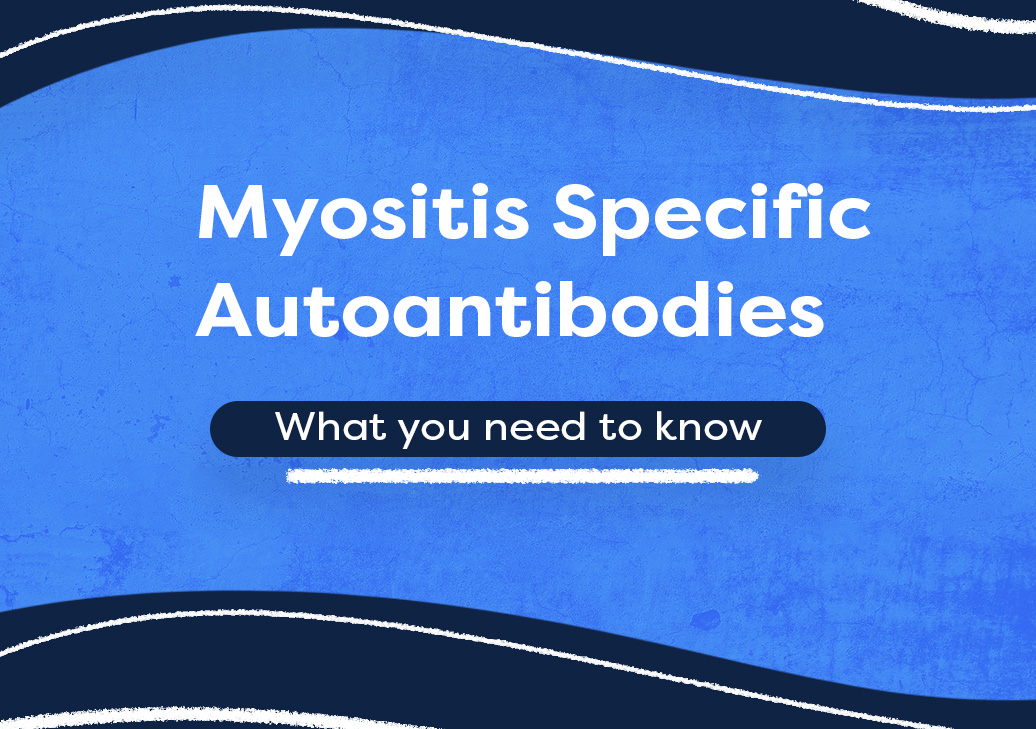
First, a few terms to know when talking about Myositis Specific AutoAntibodies. So why do we talk about Myositis Specific Autoantibodies? We know that JDM is different for every child. One of the reasons it is different is because of the MSAs. Since the autoantibodies are attacking the body, by understanding these “misguided fighters,” we can understand […]
Online Surveys for JM Patients and their Families
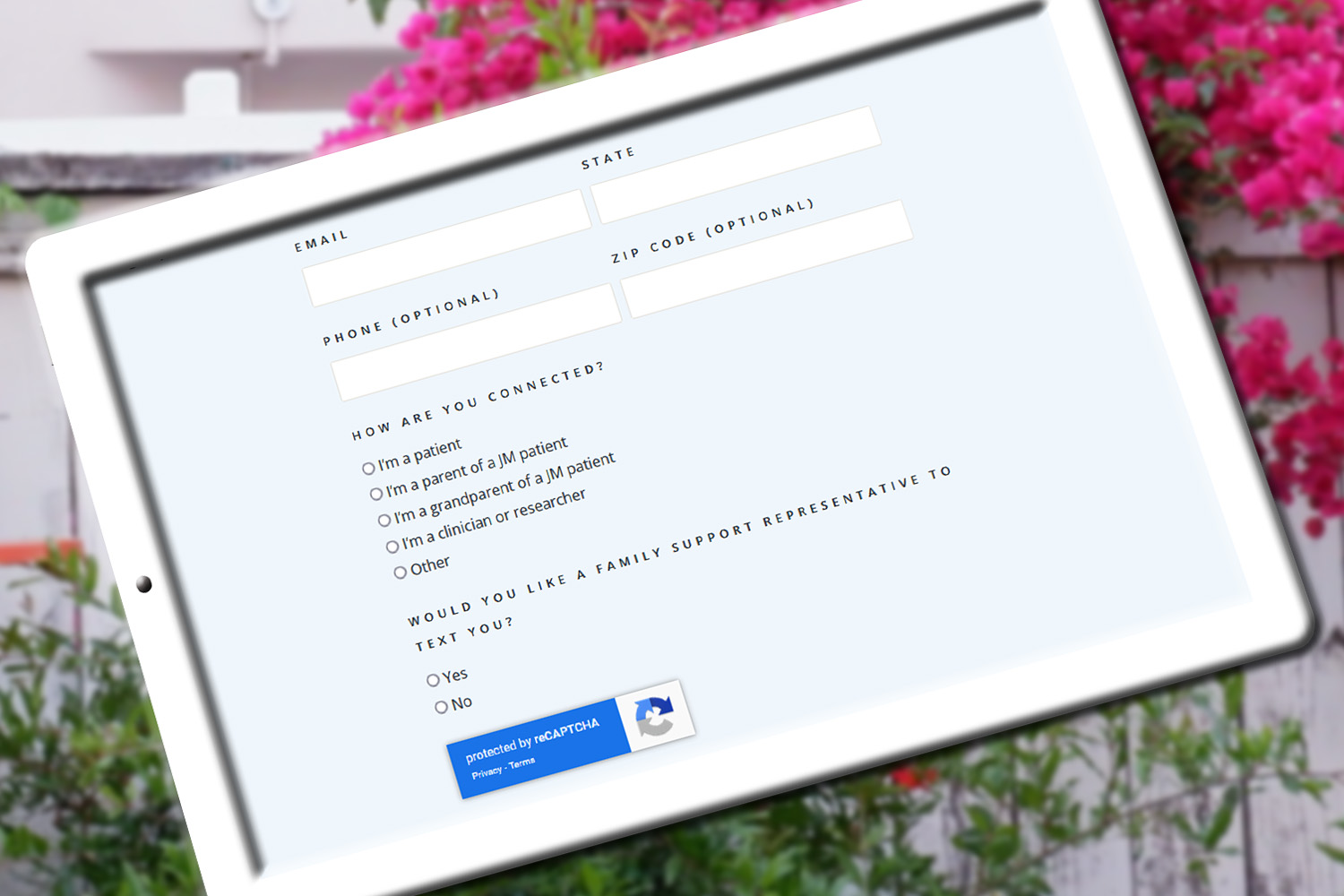
Complete an online survey to help our researchers better understand juvenile myositis and its effect on JM patients. Most surveys only take 10 to 15 minutes to complete, but the information researchers receive is invaluable.
Volunteers Needed for Clinical Trials

Help researchers find better treatments and potentially a cure for JM by volunteering for one of these important clinical trials.
Cure JM Partner Researchers Unveil Three Major Breakthroughs
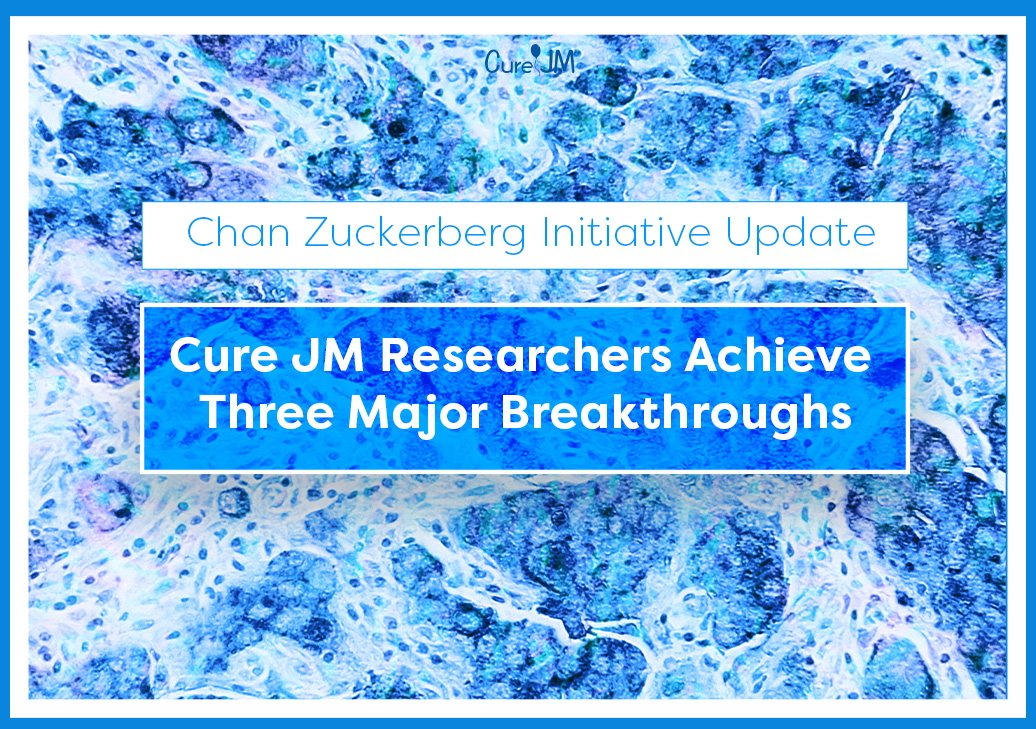
Last year, Cure JM and a team of collaborative researchers received a prestigious $2 million grant from the Chan Zuckerberg Initiative to advance our understanding of juvenile myositis (JM). The goal? To discover new markers in the blood that could lead to more precise, personalized care for children with JM. We are excited to share some of the early results from this research
Cure JM-Funded Researcher Uncovers New Biomarkers
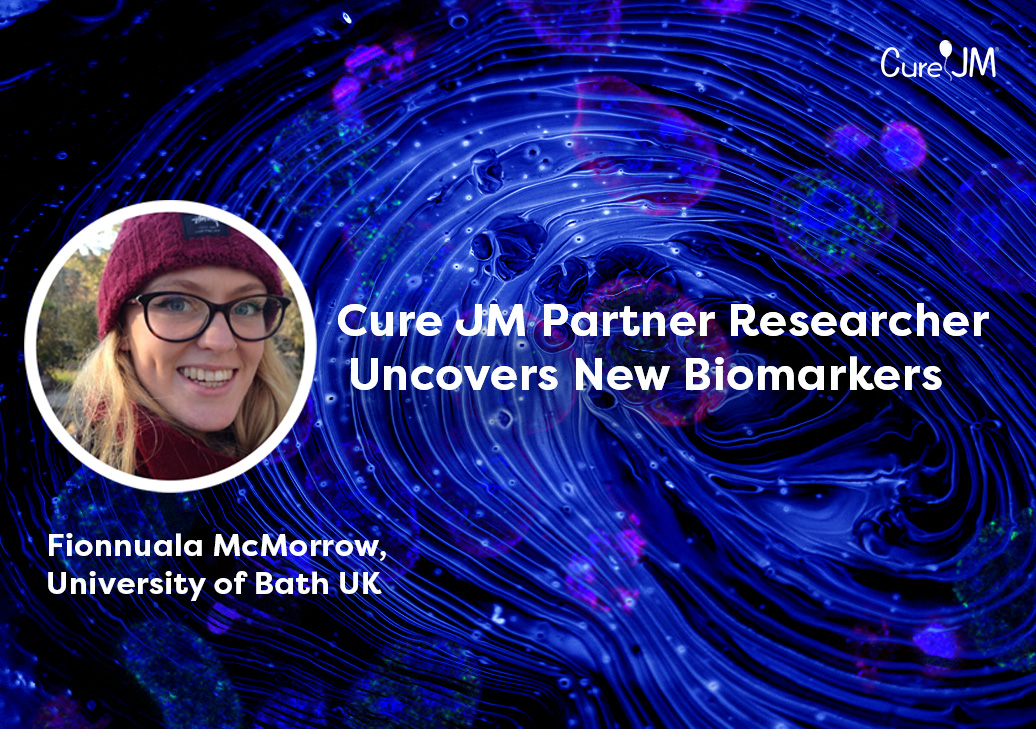
With your financial support, Cure JM is proud to have funded Fionnuala McMorrow, a Postgraduate Research Student in the Department of Life Sciences at the University of Bath, to embark on a critical research project. Fionnuala’s team analyzed blood samples from the UK to investigate two specific biomarkers (anti-CCAR1 and anti-Sp4) recently identified in U.S. patients with JDM and related conditions
Breakthrough Discovery: Misbehaving Mitochondria Linked to Juvenile Dermatomyositis
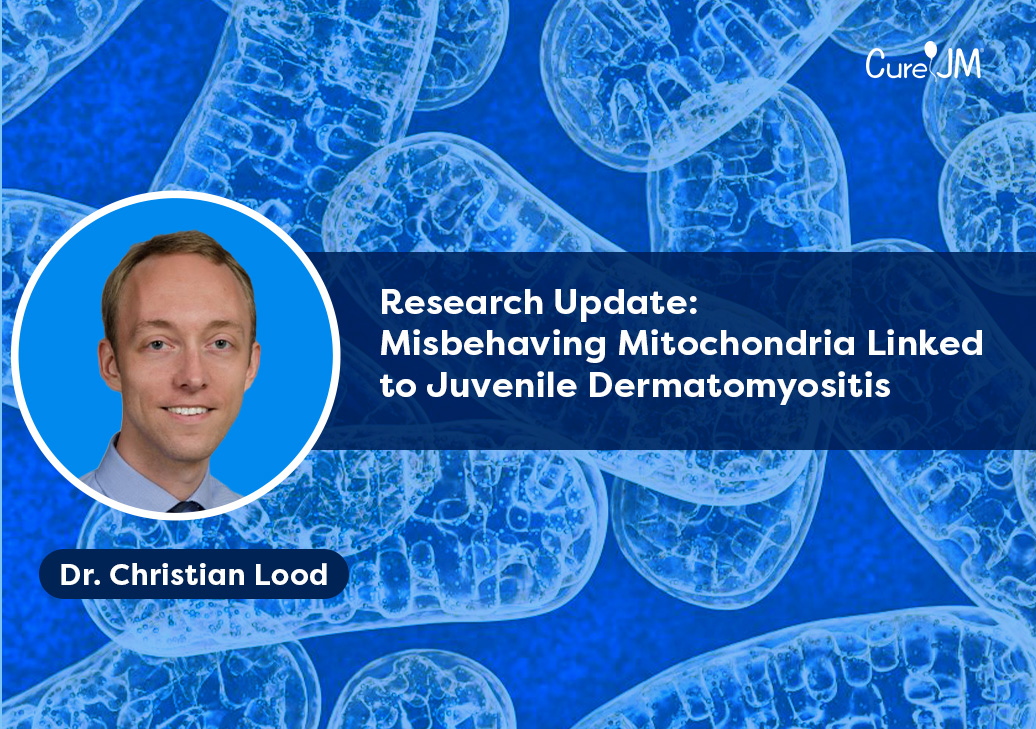
The generous support of our community has been instrumental in funding groundbreaking research this year, led by Dr. Christian Lood at the University of Washington and Cure JM’s Center of Excellence at Seattle Children’s Hospital. Dr. Lood’s team has identified calcified mitochondria in the muscle tissue of JDM patients with calcinosis – a finding that sheds new light on understanding JDM
The Potential of JAKs in Fighting JM
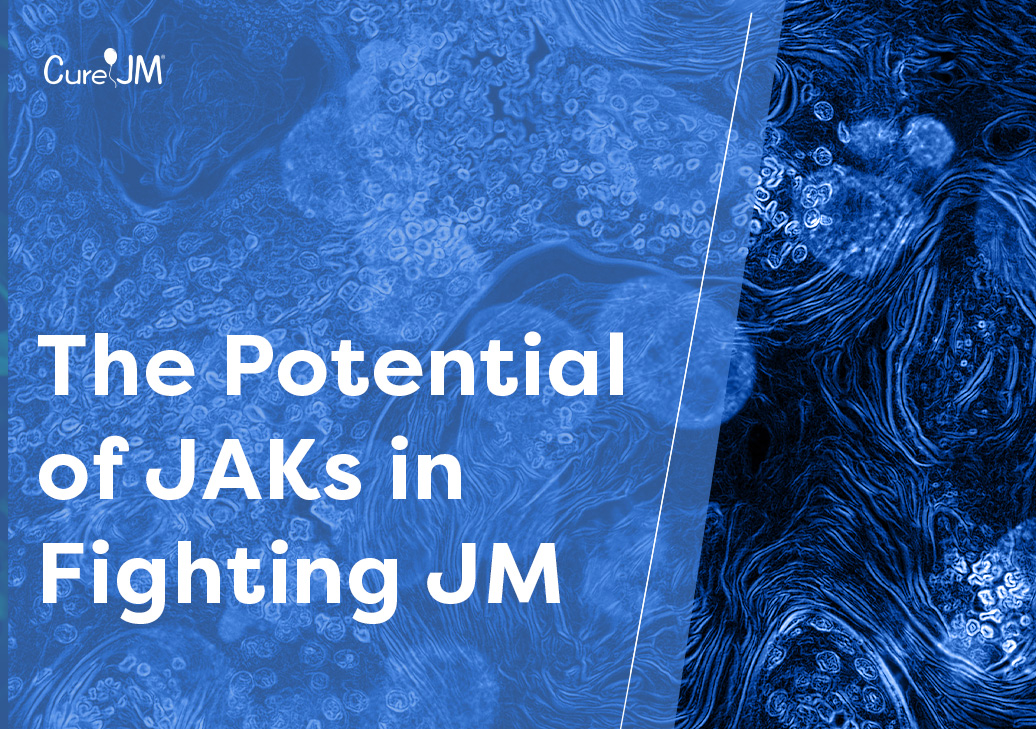
In our June 2024 “Ask the Doc” Town Hall, Dr. Julie Paik joins in a Q&A session to shed light on what JAK inhibitors are, how they work in JM, when parents might consider discussing JAKs as a treatment option, and the pros and cons of their use.
Getting the Diagnosis
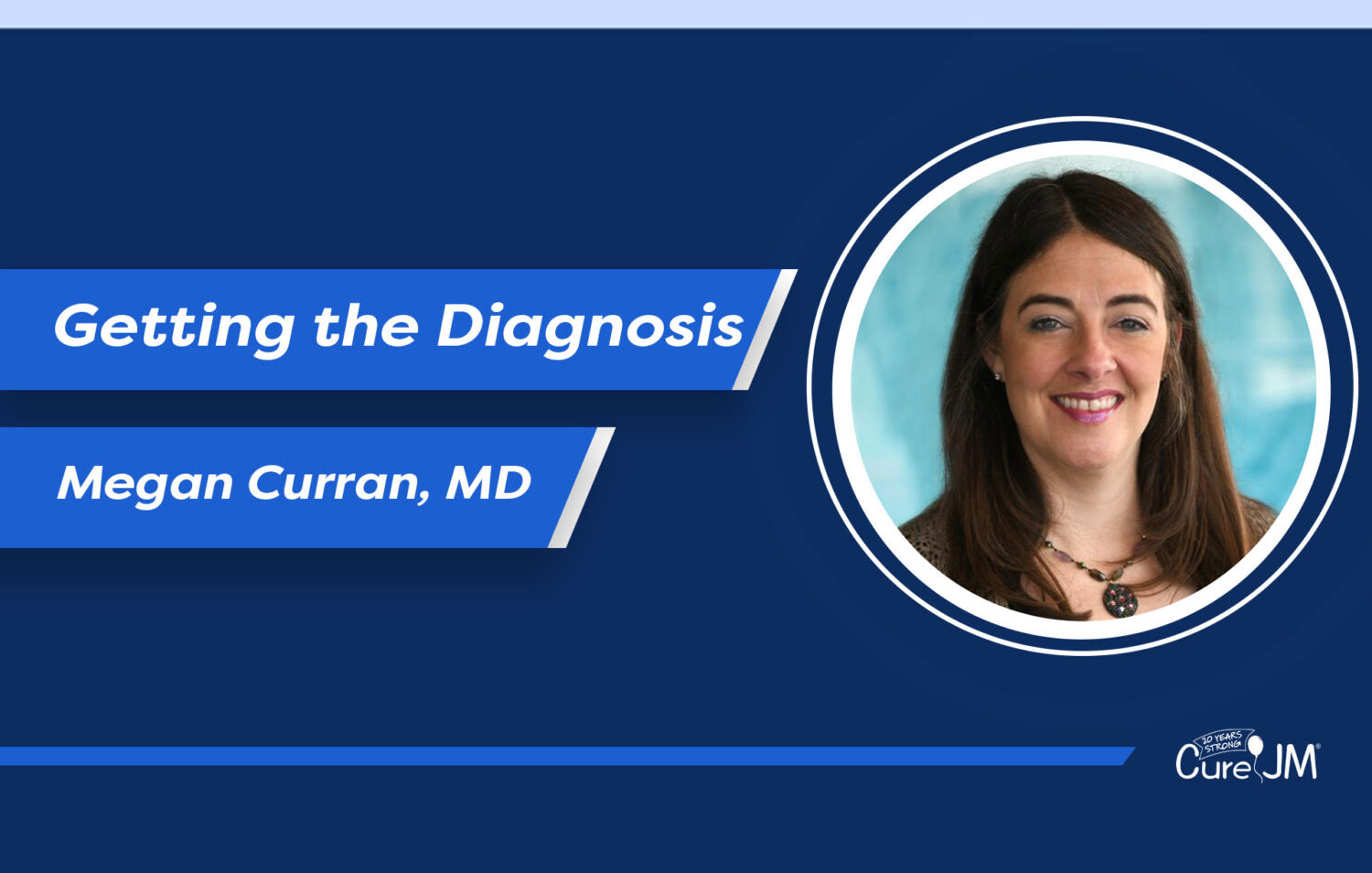
It often takes a bit of time for children with juvenile myositis (JM) to get a proper diagnosis. This is due to the fact that it is rare, it comes in many different forms, and the disease looks different for each individual. Getting a diagnosis is important no matter how long the process takes. Click […]
Video Resources
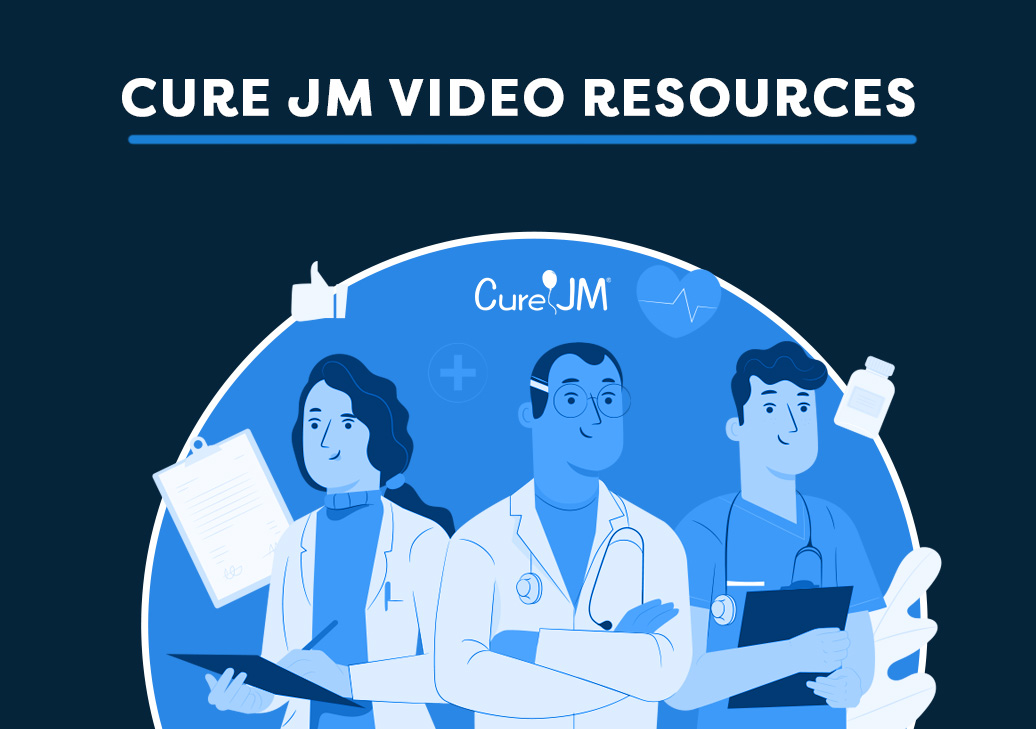
At Cure JM, we want all our information to be accessible to you and your family. We have compiled all of our video resources in one place for you to view at your leisure.
Treatment Plans for Juvenile Myositis
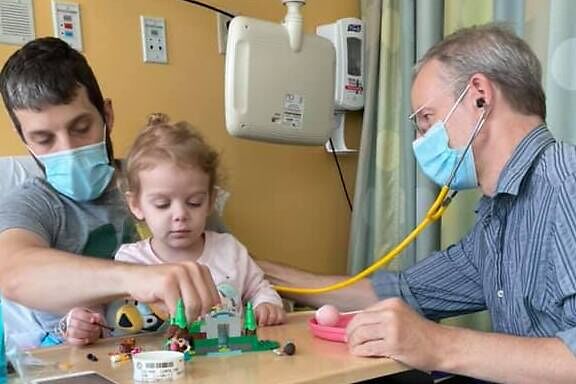
A treatment plan is based on many factors, including the severity and expression of the juvenile dermatomyositis (JDM). Each case is different and the symptoms can change over time.
Research Volunteers and Assistance Needed
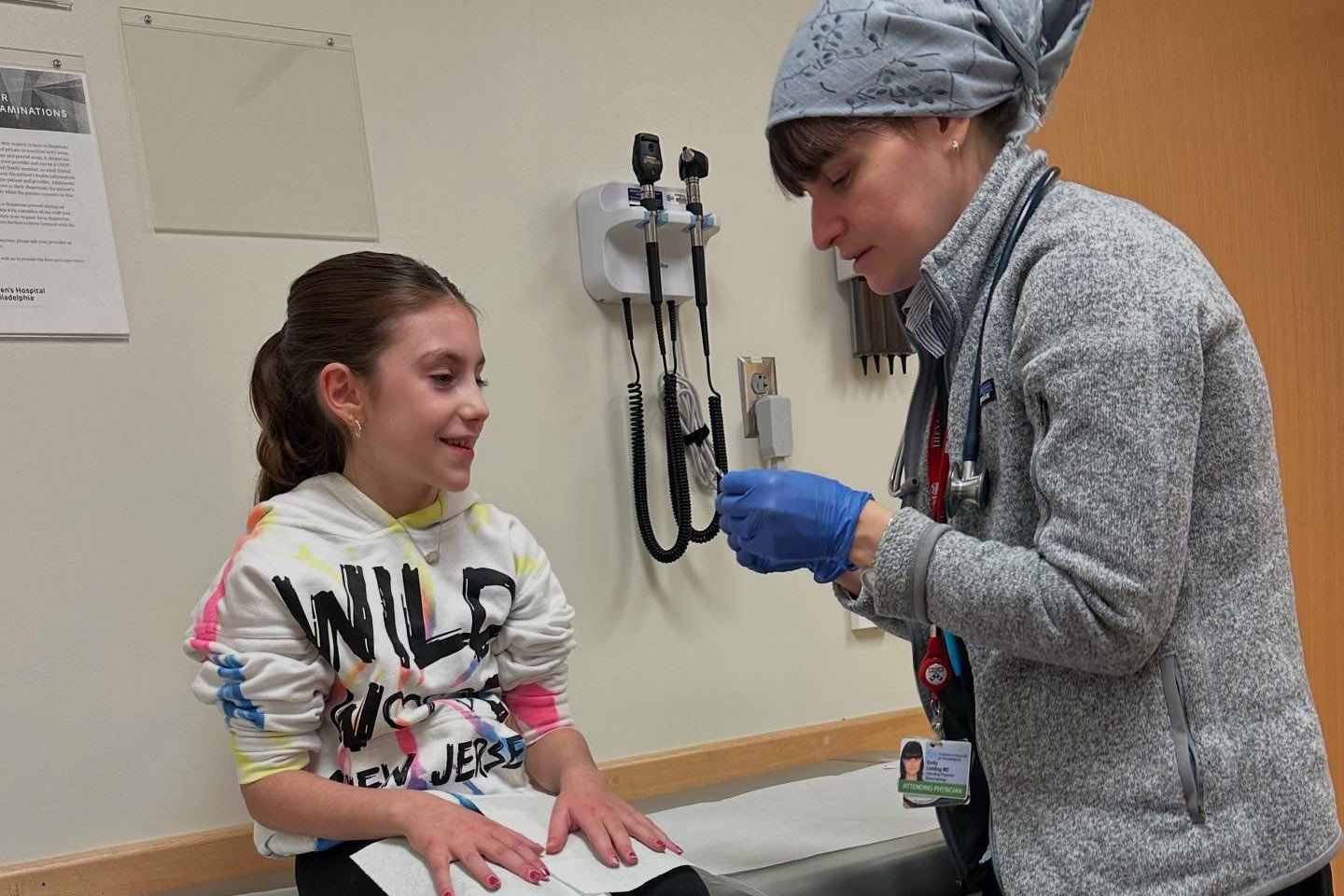
Help researchers find the cause and a cure for juvenile myositis by volunteering for these important studies.
What We Know About Calcinosis & How to Treat It
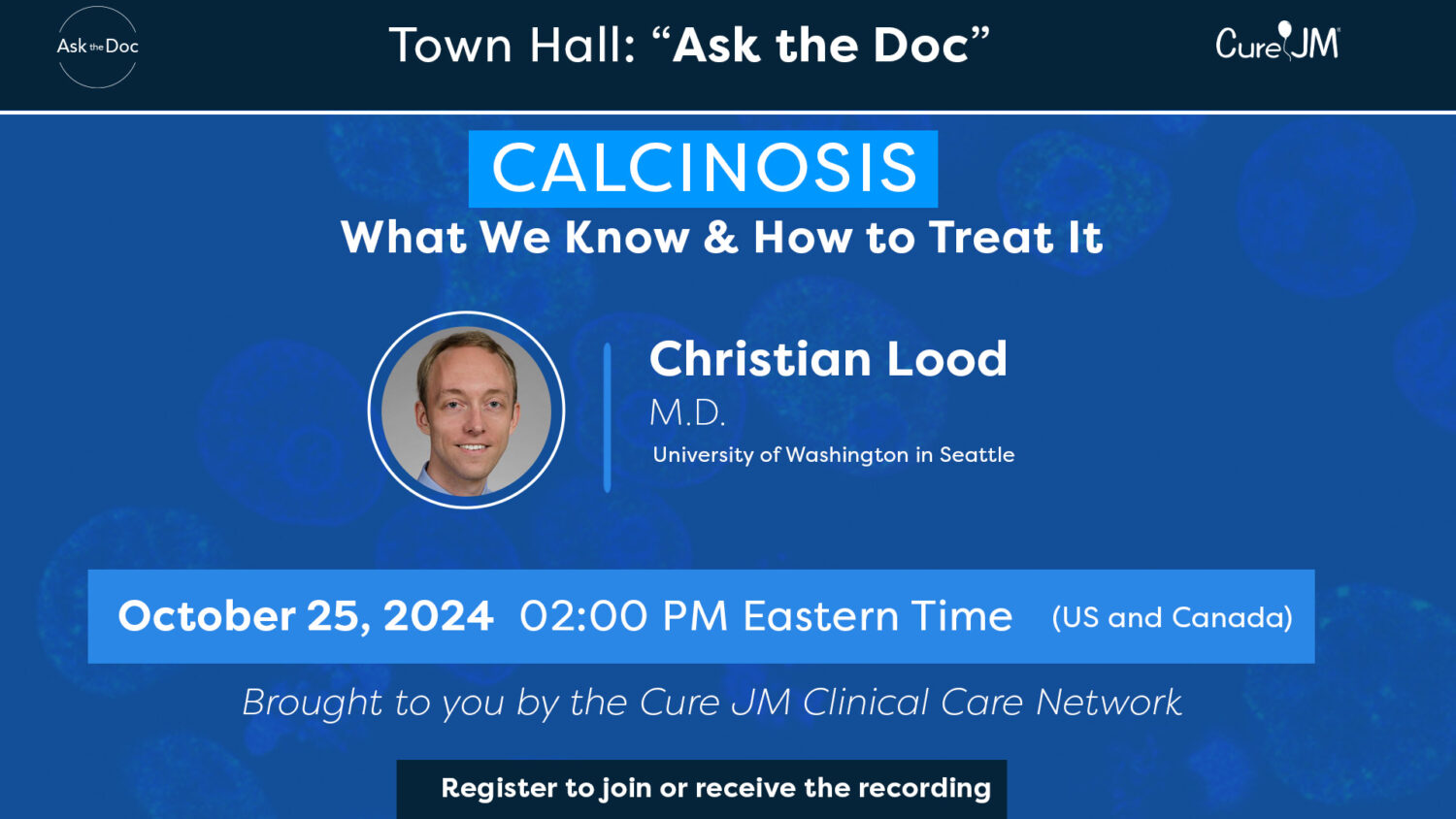
At the October 25th Town Hall, Dr. Christian Lood, professor and researcher at the University of Washington and Seattle Children’s Hospital, presented on the topic of treating a potential complication of juvenile myositis known as calcinosis. Calcinosis is the accumulation of calcium phosphate crystals in soft tissue (skin, muscle). It appears as hard, irregular nodules […]
What Parents Should Know About IVIg (Intra-Venous ImmunoGlobulin)
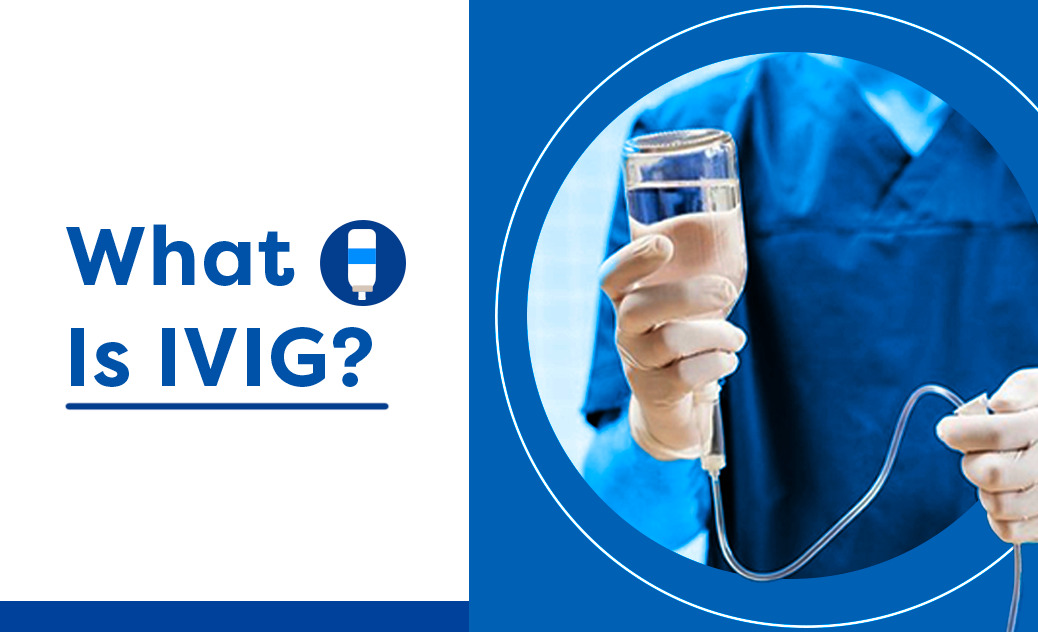
The questions about what to do before and post-IVIg to prevent side effects come up often. We know that IVIg can be a very beneficial treatment for JDM, yet it is not without potential side effects. Please read further to minimize the event’s trauma and prevent side effects, e.g., nausea, severe headaches, etc.
Affordable and Accessible Treatments for JM

Two special guest speakers, Michelle Vogel, MPA, IV Solutions RX, and Laurel Cherwin, BSN, RN, IgCN, Octapharma, shared information on navigating affordable treatments and care for JM patients.
Advocating for Your Child: Navigating School and Community
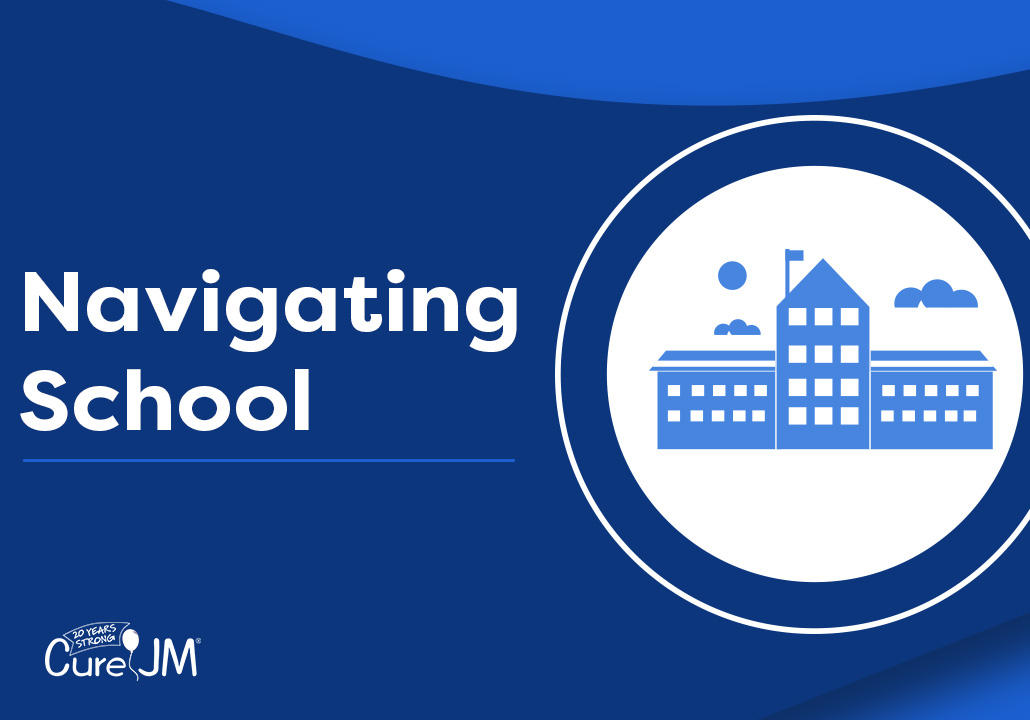
Practical tips on how to navigate your child’s school system. Presented by Michelle Best (special education and mental health advocate) and Sue Carpenter (special education resource specialist teacher).
Cabaletta Bio Presents Promising Early Data on CAR-T Therapy for Myositis
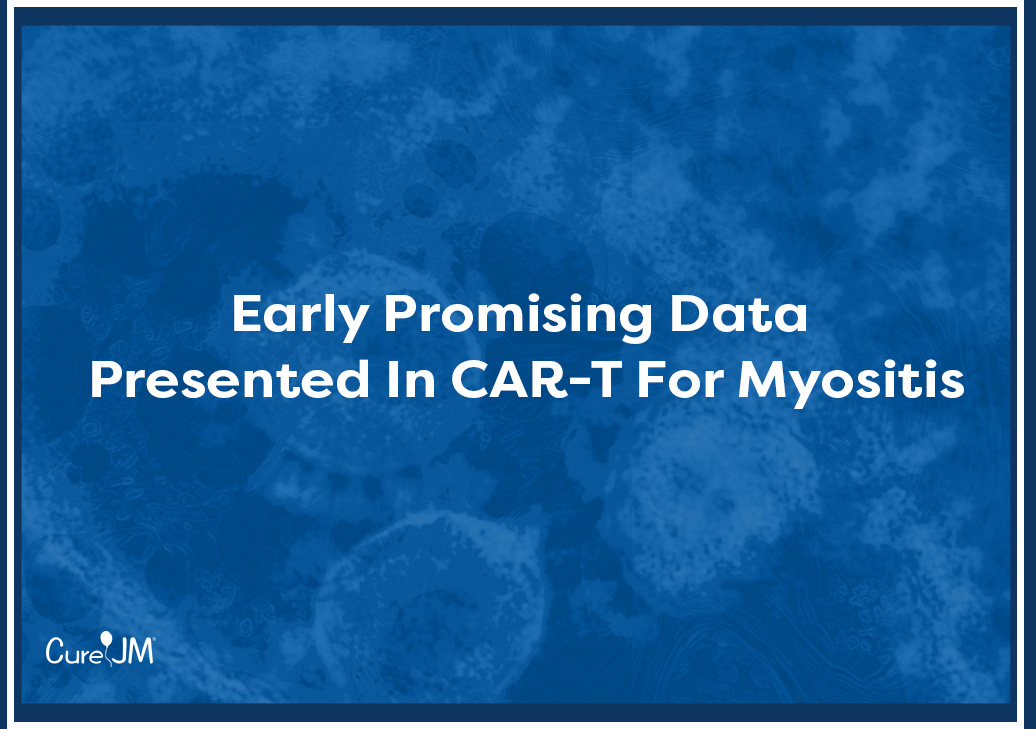
We expected to hear promising news about the potential for CAR-T therapy to treat myositis at the Global Conference on Myositis (GCOM).
What we heard was more than promising—it was astounding.
What if I told you that there was a therapy that would “reset” the immune system—virtually eliminating the autoimmune response in myositis that causes inflammation, pain, muscle weakness, and other JM conditions of which we are all too familiar.
Balancing Work and Caregiving: Strategies for Working Parents of Children with Juvenile Myositis
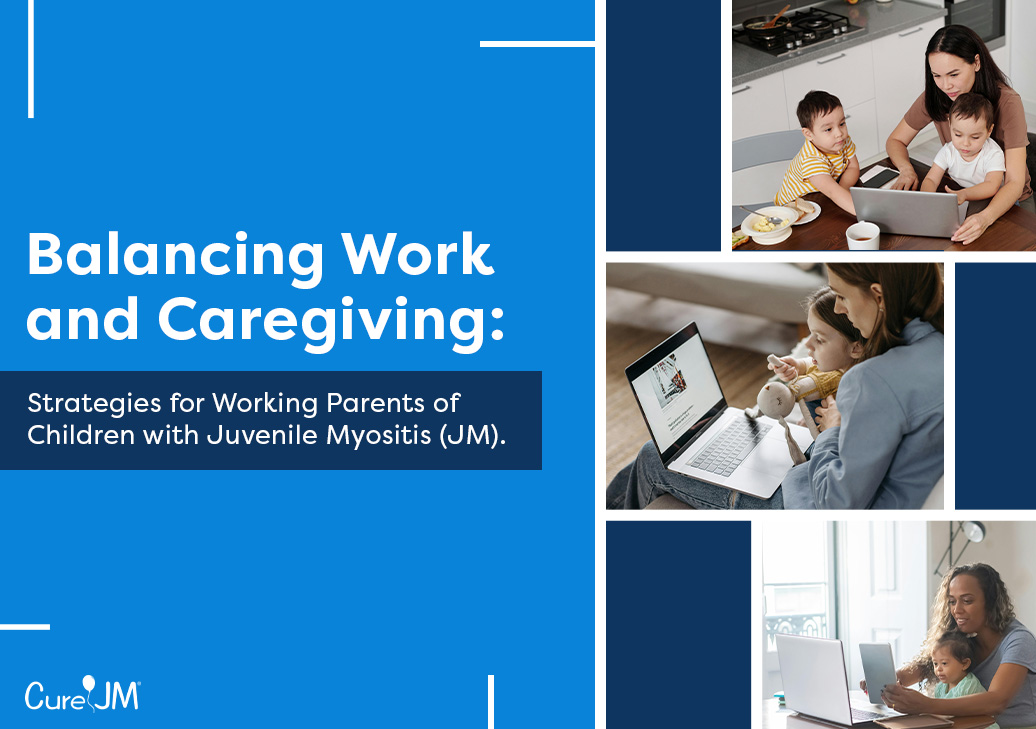
Balancing the demands of a career with the responsibilities of caregiving is a challenging task for any parent. For those with a child diagnosed with juvenile myositis (JM), a rare autoimmune disease affecting children, the challenge is heightened. Juggling work commitments while providing the necessary care and support for a child with JM can be taxing. In this article, we hope to provide you with a few effective strategies and insights to help working parents navigate this delicate balance.
Supporting Restful Nights: Practical Tips for Parents of Children with JM
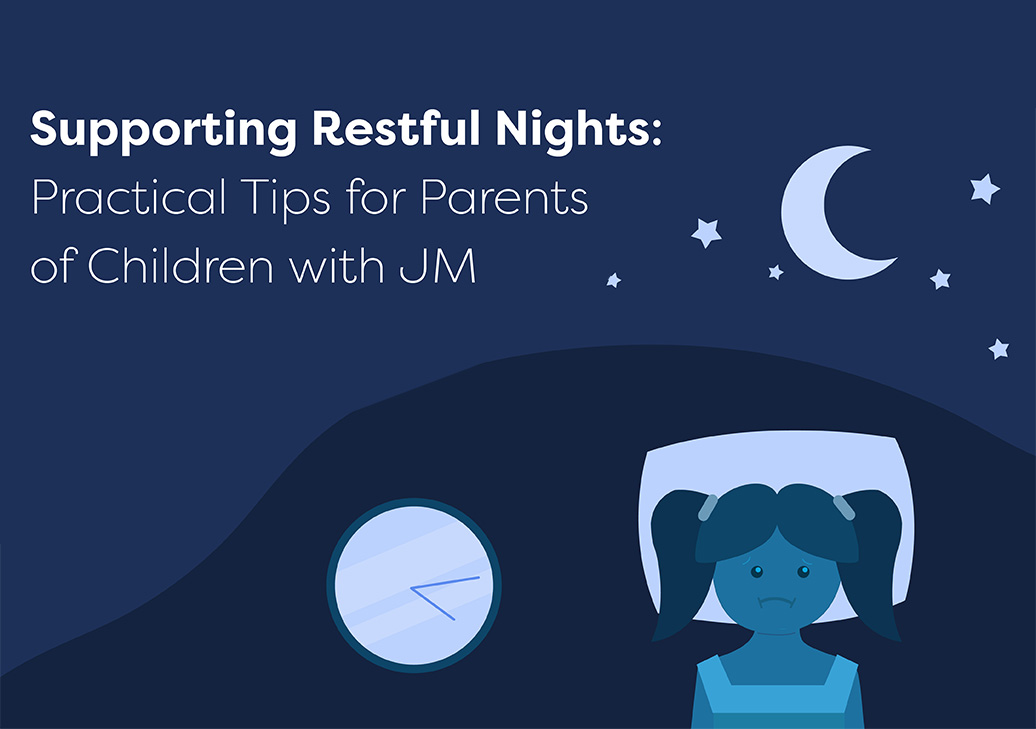
One common issue that we hear about from our families is that after diagnosis their child has trouble falling asleep or staying asleep. This can be due to a variety of factors including discomfort, pain, worry, or fear. Corticosteroids and other JM treatments can also interfere with sleep.
Published Research Studies and Abstracts Supported by Cure JM
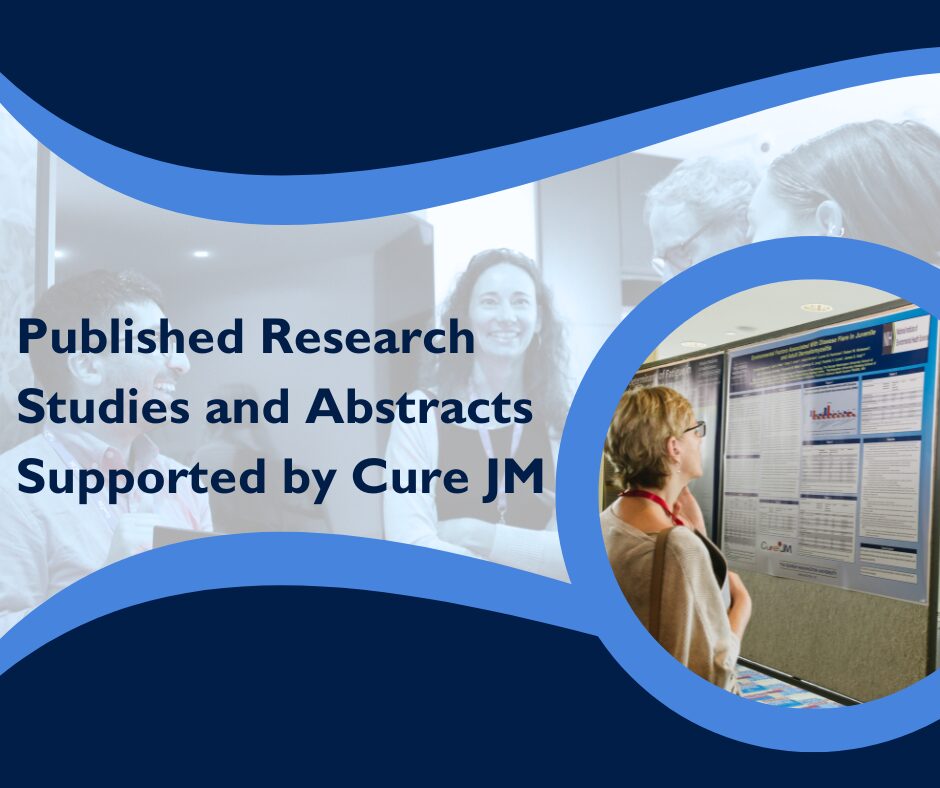
There are a number of published studies about juvenile myositis. Browse this list of over 100 published research studies and abstracts.
Caring for Smiles with JM: Navigating Dental Health Challenges with a Suppressed Immune System
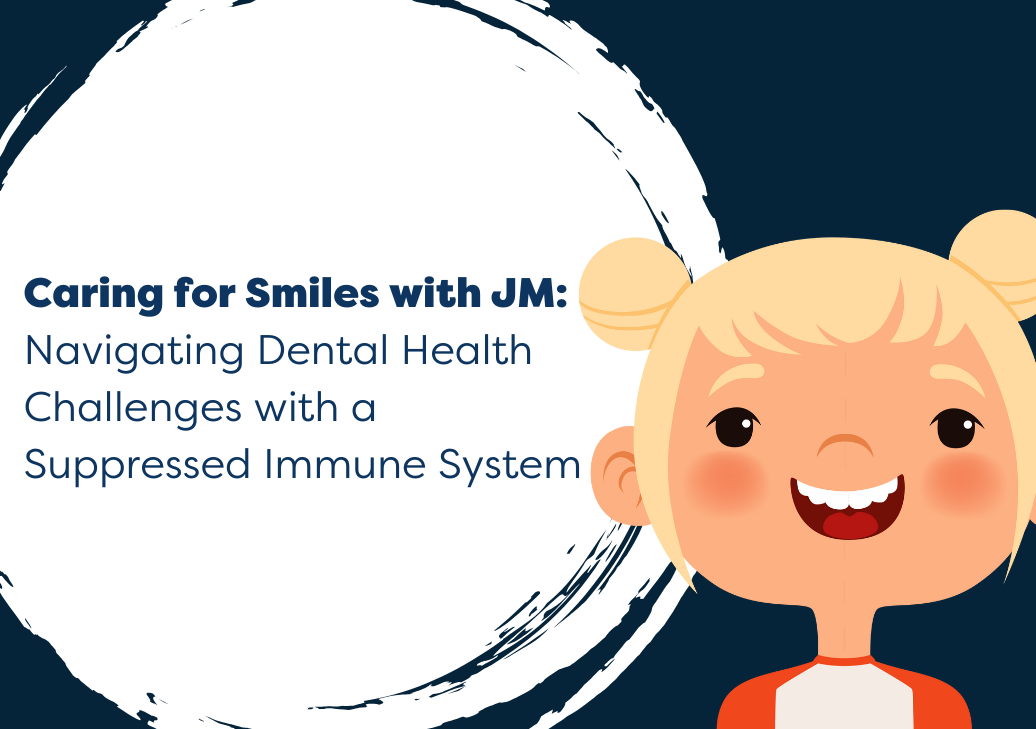
As Cure JM parents, we know that the disease and medications often can cause a cascade of other issues. One issue many of our families see is poor dental health. Yes, a suppressed immune system can affect dental health and teeth in several ways. Since the immune system plays a crucial role in fighting infections and maintaining overall health, its […]
How Important is Exercise for JM Patients While on the Path to Recovery and Remission?
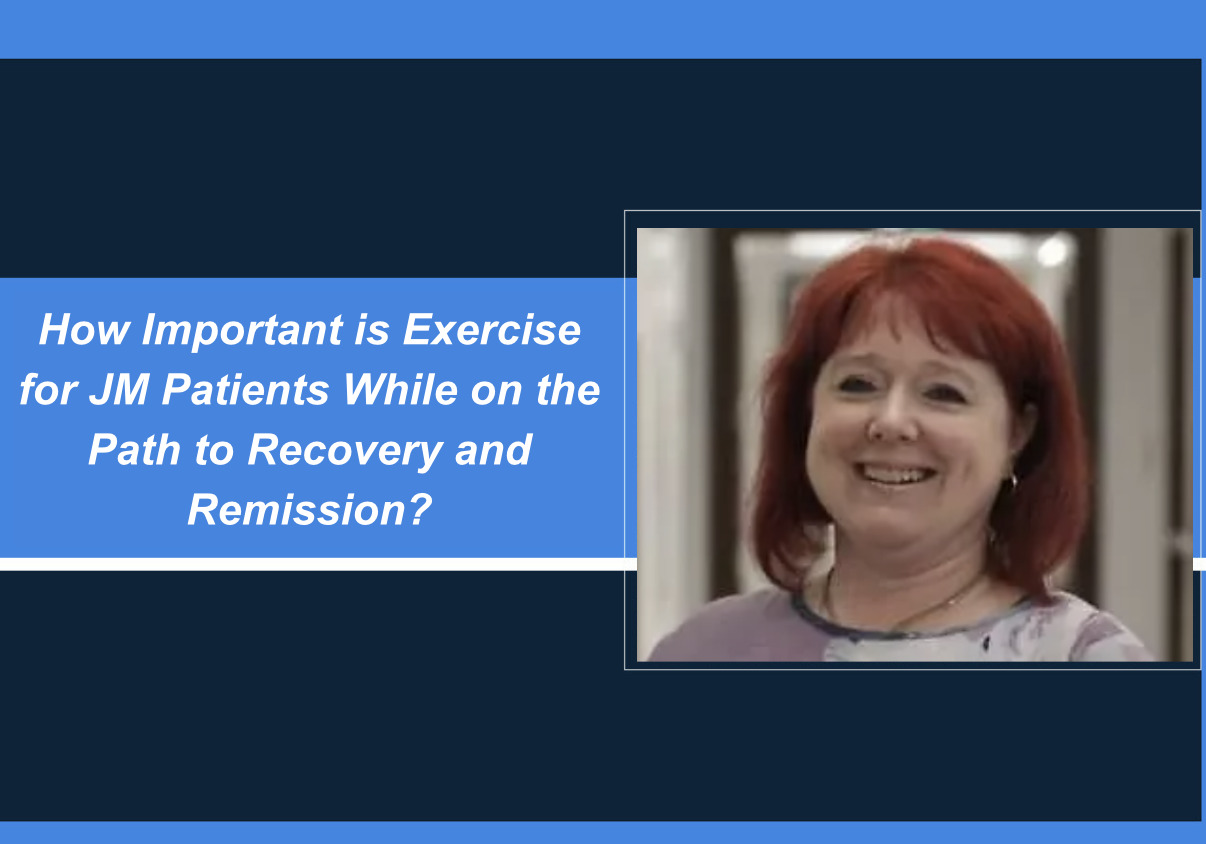
Juvenile myositis patients and parents of children with JM often ask how important exercise is while on the path to recovery and remission.
Traveling with JM

Planning a trip or vacation can be challenging, especially when you have a child with juvenile myositis. With spring break and summer break just around the corner, the pressure might be even greater. However, at Cure JM, we want to help ensure that you and your child can enjoy all the delights of a vacation with minimal stress.
Cure JM’s 20th Year Opens With the Promise of Four New Research Grants

Research Grants: New Grantees and Exciting Updates From Existing Grant Recipients This year saw a very strong field of grant applications across a variety of JDM research projects. Again, we saw applications spanning the globe, recognition of the Cure JM Foundation’s preeminence in JM research, and global reach. There is a robust process to rank […]
Mental and Emotional Health FAQ for Caregivers
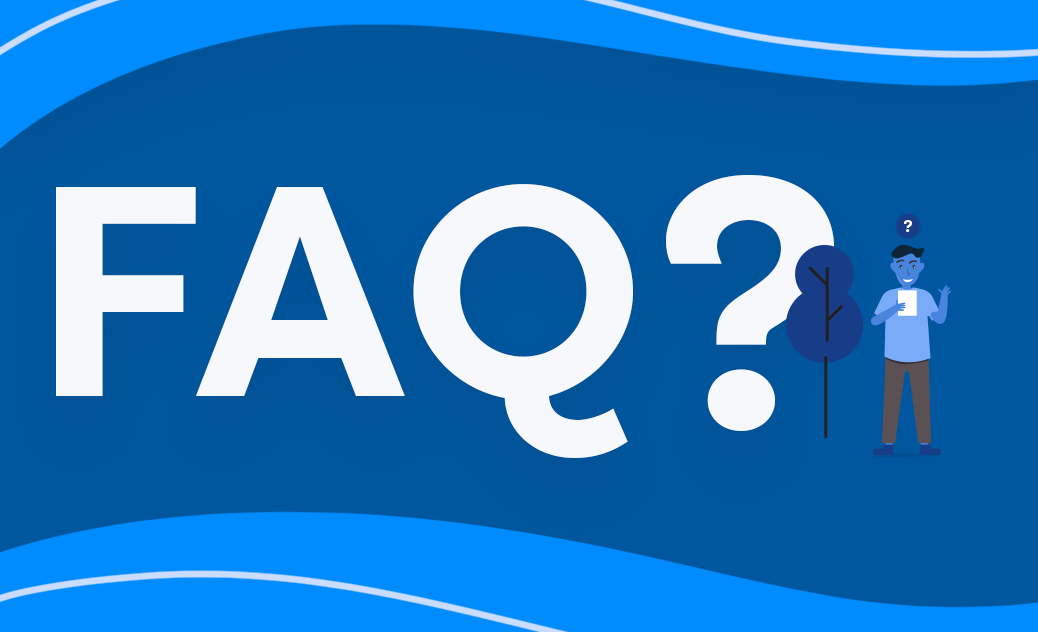
Why is emotional/mental health important to our JM kids? Where can I find out more about mental health issues for our JM kids? Where can I learn more about how JM influences anxiety and depression? Where can I learn more about the signs of anxiety and depression in kids and teens? Where can I get […]
Six Mindful Tips for Newly Diagnosed Families
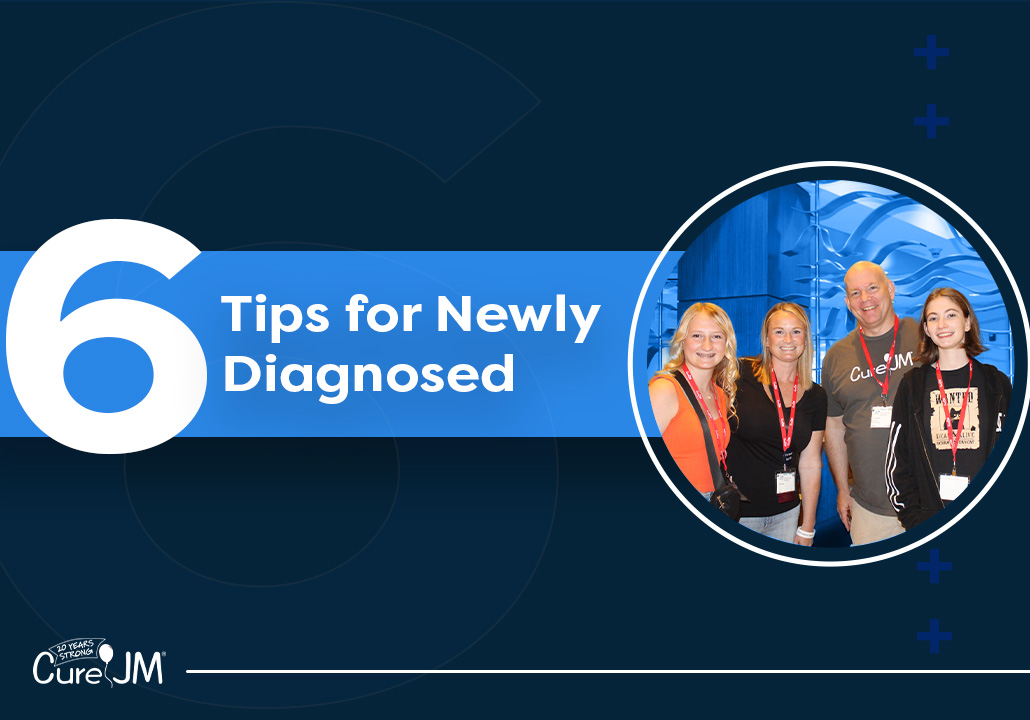
In speaking with JM families nationwide, we have identified six, “mindful tips,” that are crucial when you, your child, and your family are battling JM.
Myositis and You
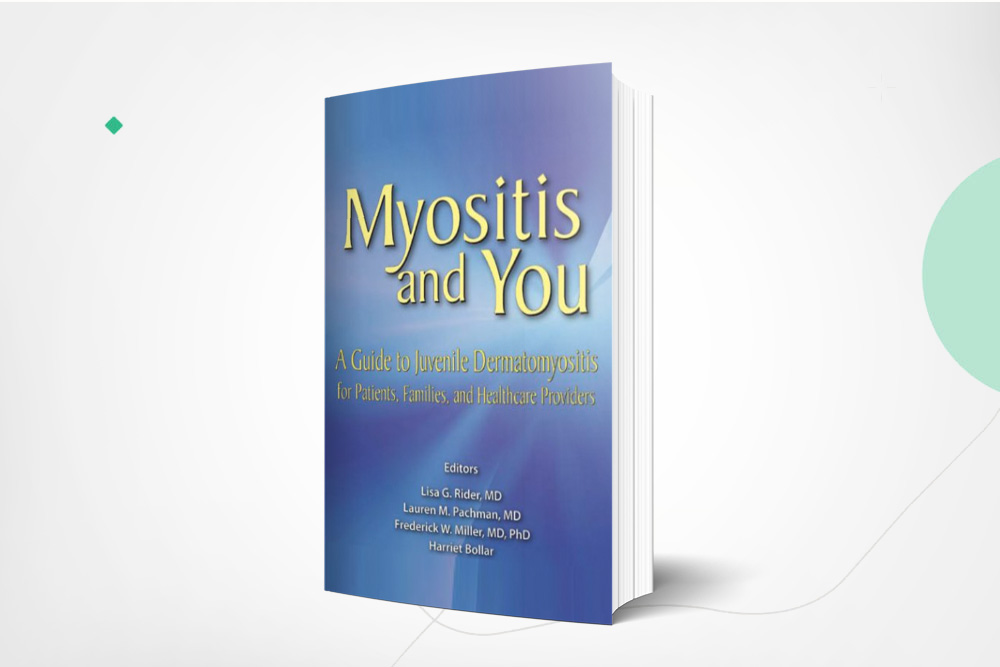
This comprehensive guide to juvenile dermatomyositis features over 450 pages with contributions from over 80 experts and medical professionals.
Chapter Facebook Groups
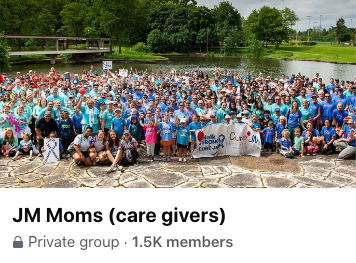
Connecting with families can be a great source of knowledge and support. To connect with other families in your region, find your area below or contact Betsy Leon at info@curejm.org.
Transitioning Care From Pediatric Rheumatology to Adult Care
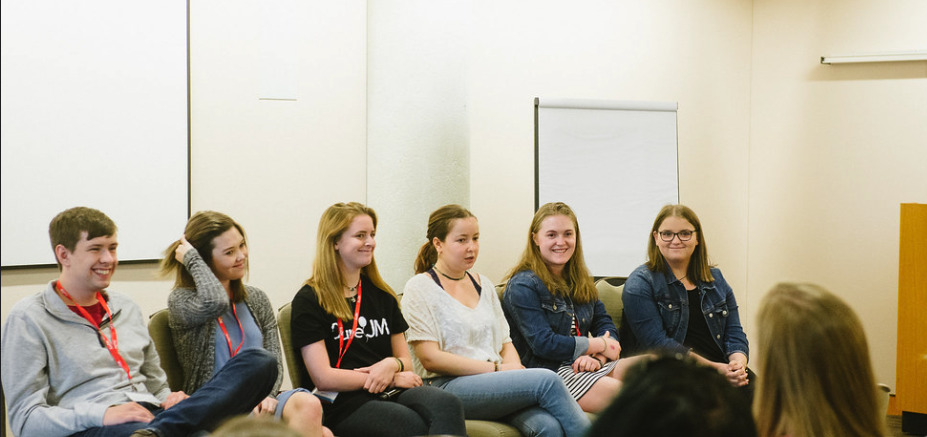
Dr. Sadun is a pediatric and adult rheumatologist at Duke University, a Cure JM Center of Excellence. She recently presented at the Global Conference on Myositis (GCOM) on transitioning care from pediatric rheumatology to adult care.
Exercise and Juvenile Myositis
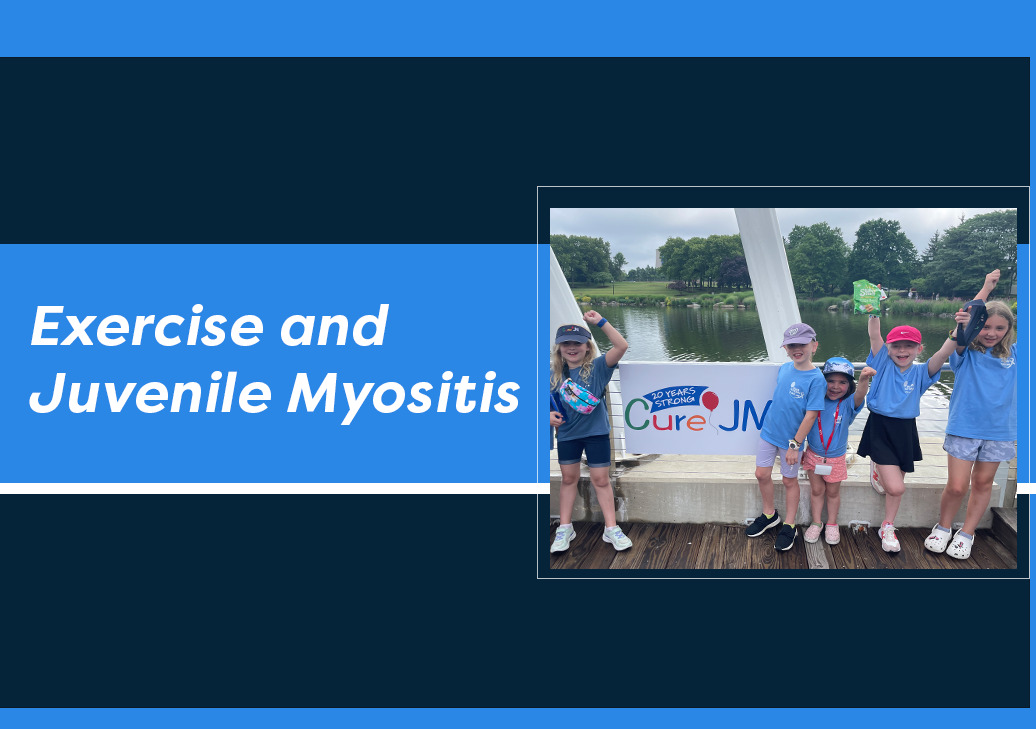
Over the past few years, exercise in juvenile myositis patients has garnered the attention of experts. Exercise is regarded as an important therapy in JM and should be done whether a child is in active disease or remission.
Sun Protection

Whether newly diagnosed or well into your JM journey, you’ve probably heard that sun and ultraviolet light can be a factor in triggering disease activity. Our families and patients often wonder the best ways to protect themselves or their children during the most UV-intense months.
Resources for Emotional and Mental Health
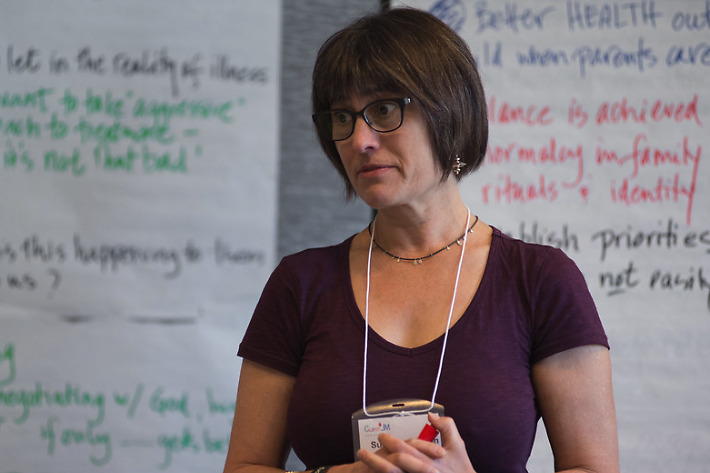
Having a chronic and rare disease is a challenging experience for anyone to go through, and especially difficult on children and adolescents.
Emotional and Mental Health: Getting Help
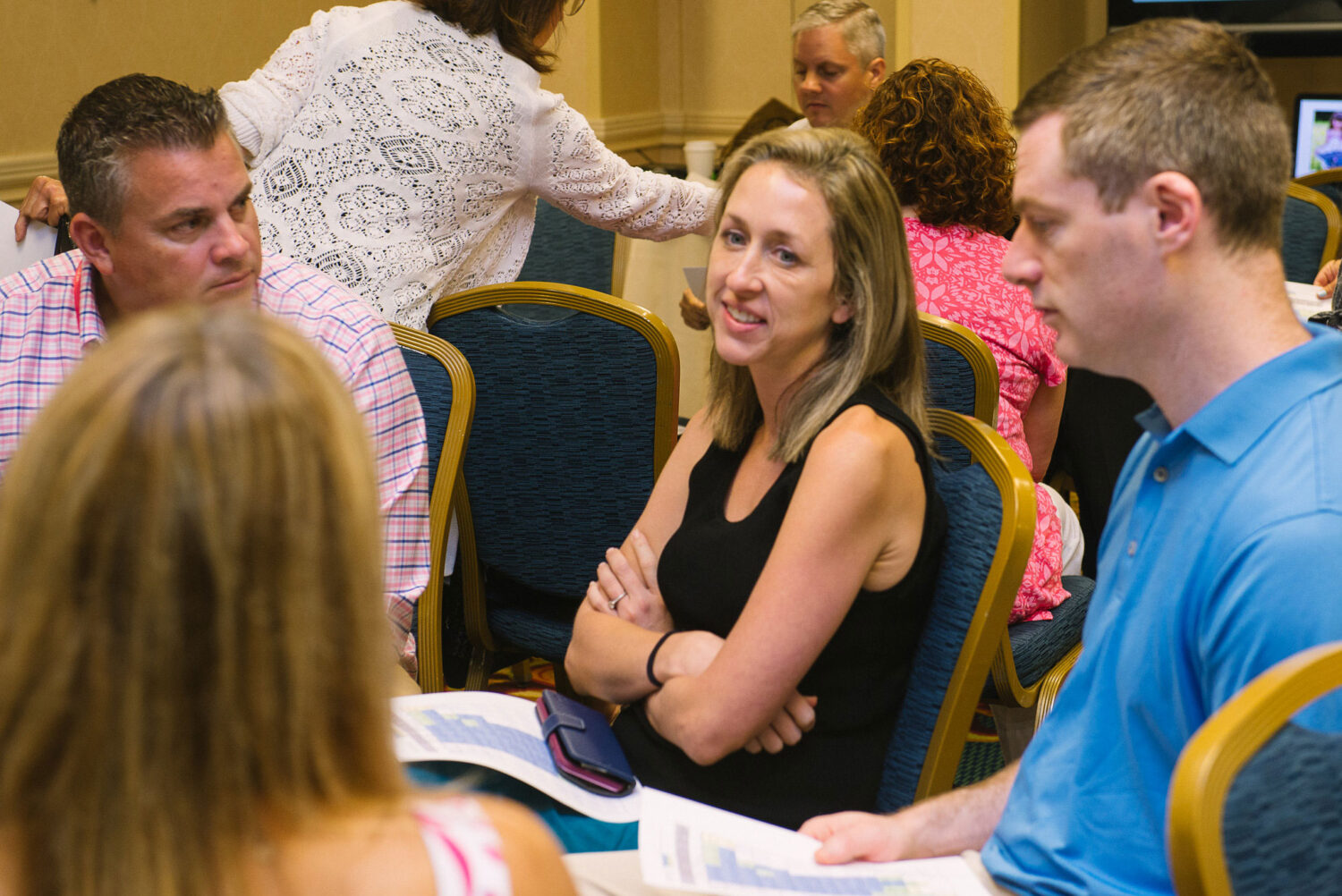
There are resources available for mental health care though it can take awhile to research them, access them, and follow up on the care.
The Importance of Research
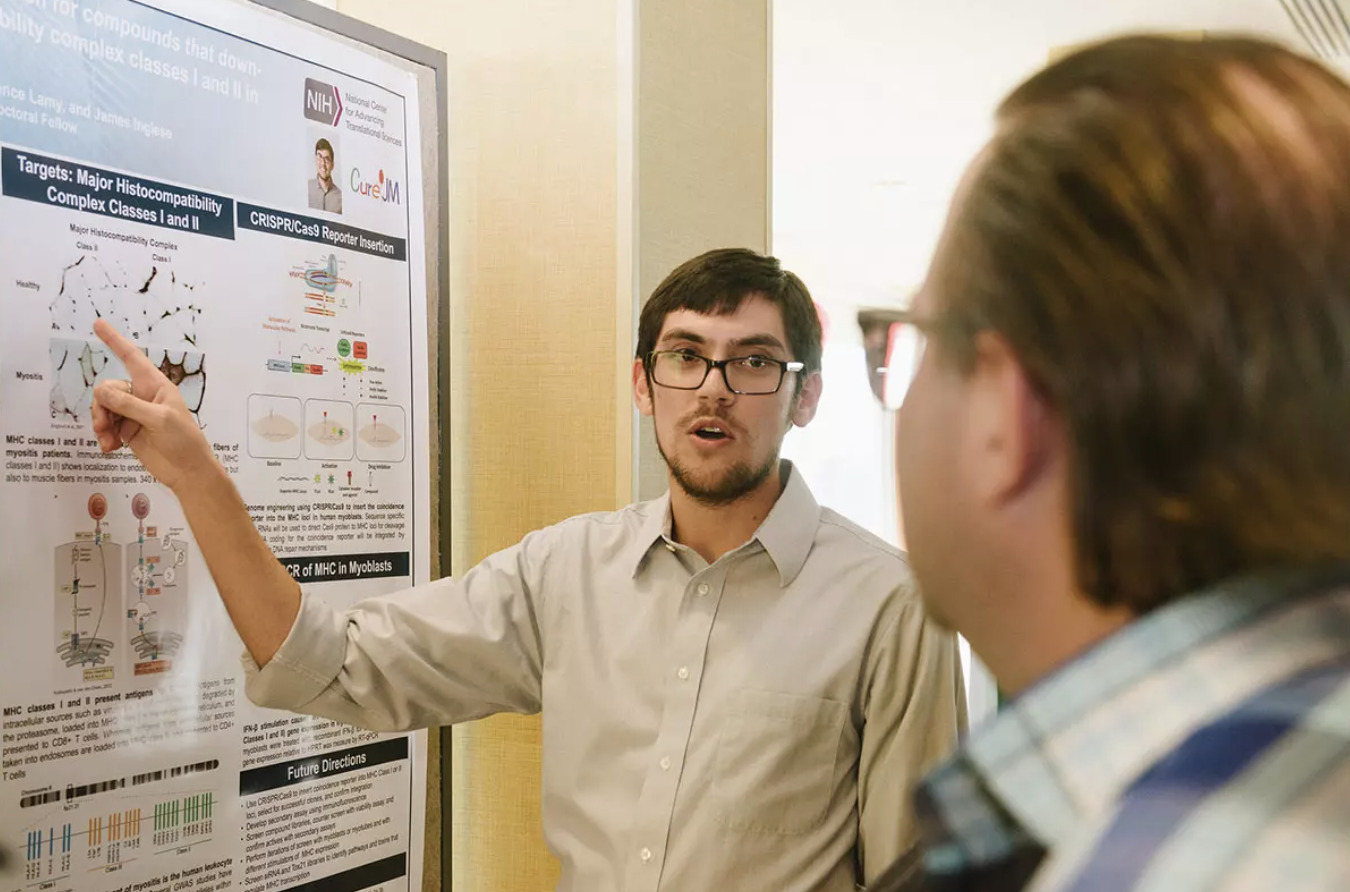
Research is vital to finding better treatments and a cure for juvenile myositis. Cure JM funds research studies through our Cure JM Centers of Excellence and the Cure JM Clinical Care Network.
Impact of Juvenile Myositis on Mental Health
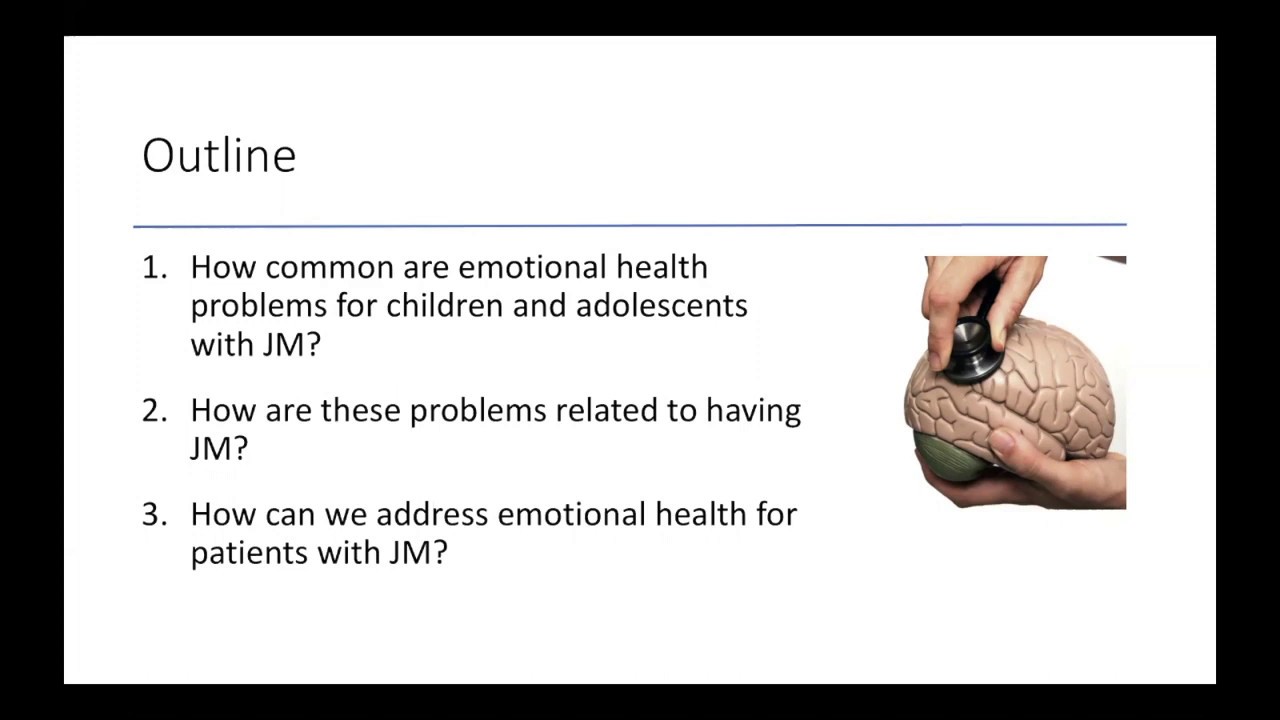
Drs. Kaveh Ardalan, Andrea Knight and Alison Manning discuss juvenile myositis’ impact on mental health.
Juvenile Myositis Educational Video
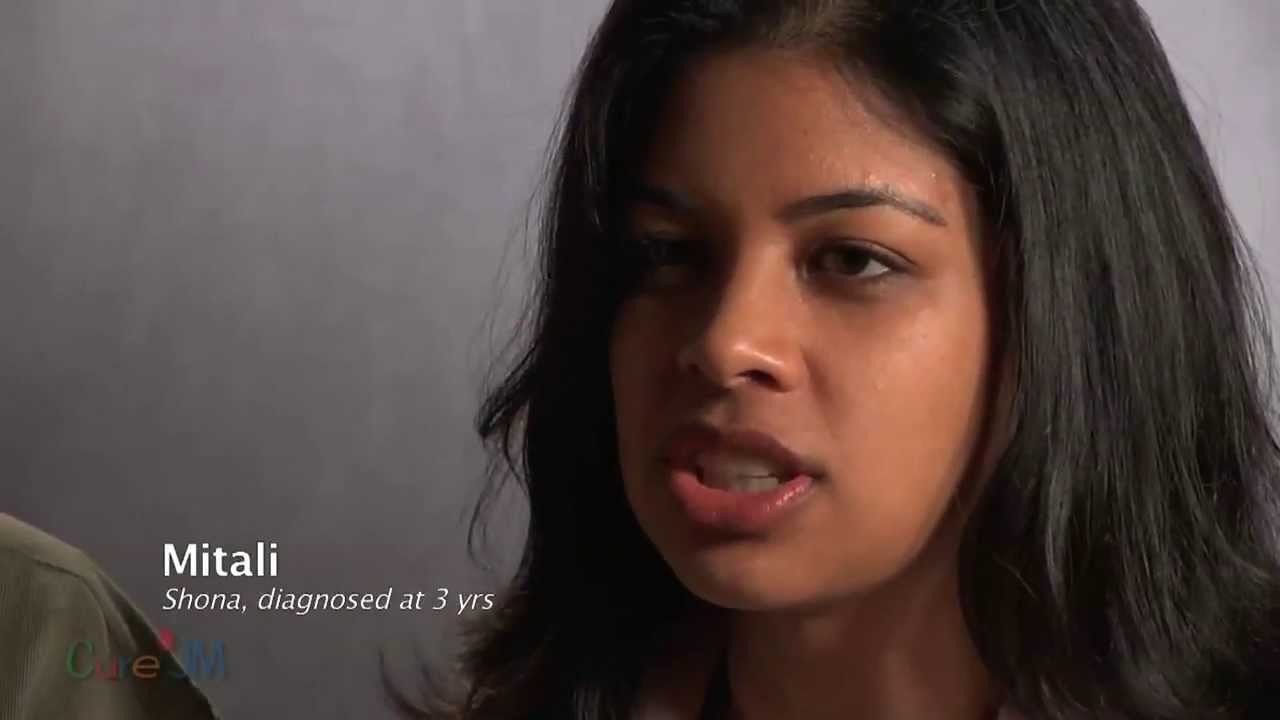
This video provides an overview of juvenile myositis for families newly diagnosed with juvenile dermatomyositis (JDM) or juvenile polymyositis (JPM).
Emotional and Mental Health Resources: Teens and Young Adults
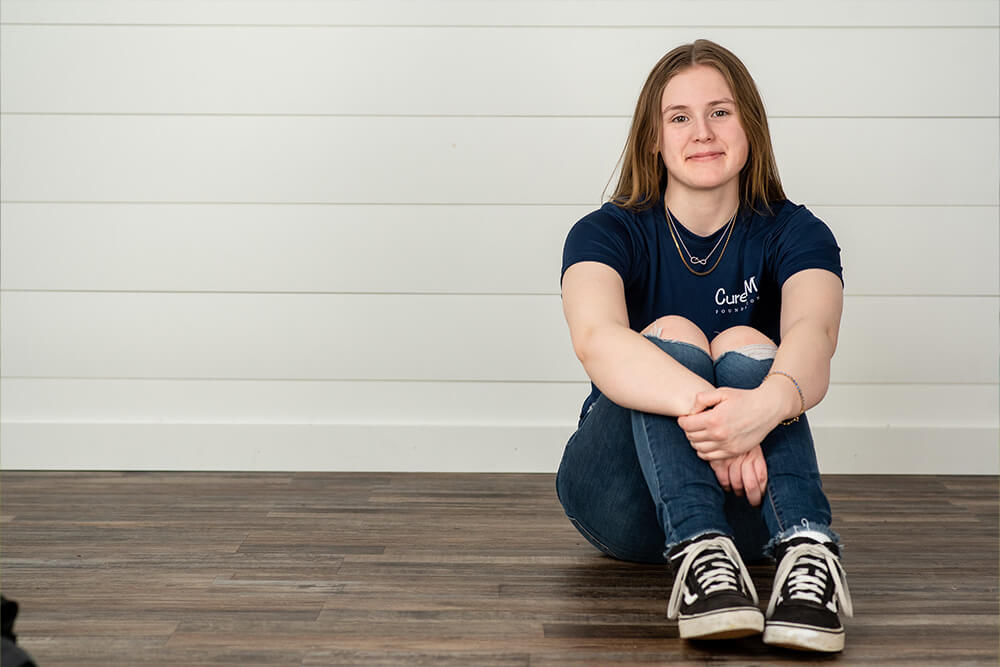
Besides the normal turmoil of adolescence, having a diagnosis of juvenile myositis can present you with more stress due to changes in body image, medical visits, medicines, etc.
Family News
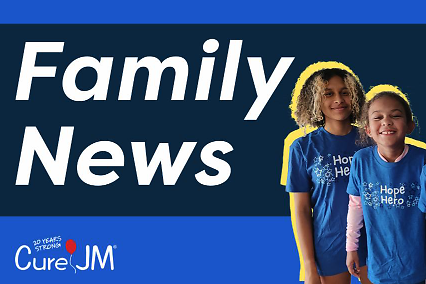
The Cure JM Foundation produces a monthly newsletter with the latest news and updates about juvenile myositis. Please click to read past issues of the Family News.
Livy and Gianna’s Enduring Friendship
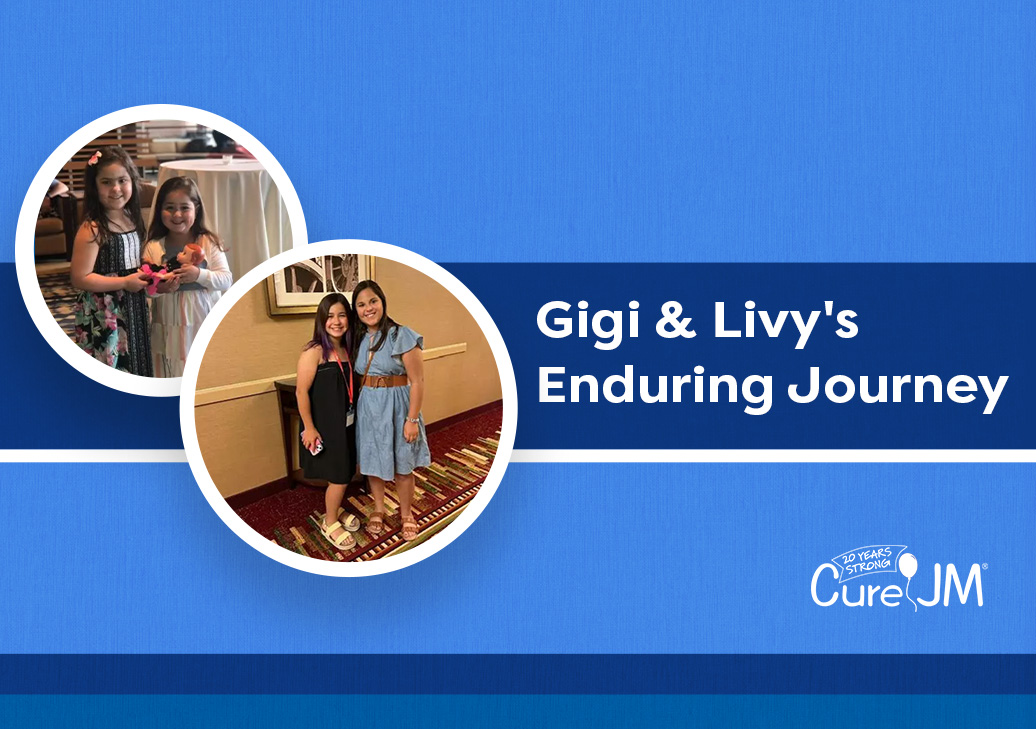
Building friendships with others in the JM community can be difficult. Since JM is a rare disease, medical common ground might be a state away. But at this summer’s conference, Cure JM’s common ground was Gaithersburg, MD. There, a friendship between two girls was built—but not from scratch. This summer Gigi and Livy shared a […]
Emotional and Mental Health: General Resources
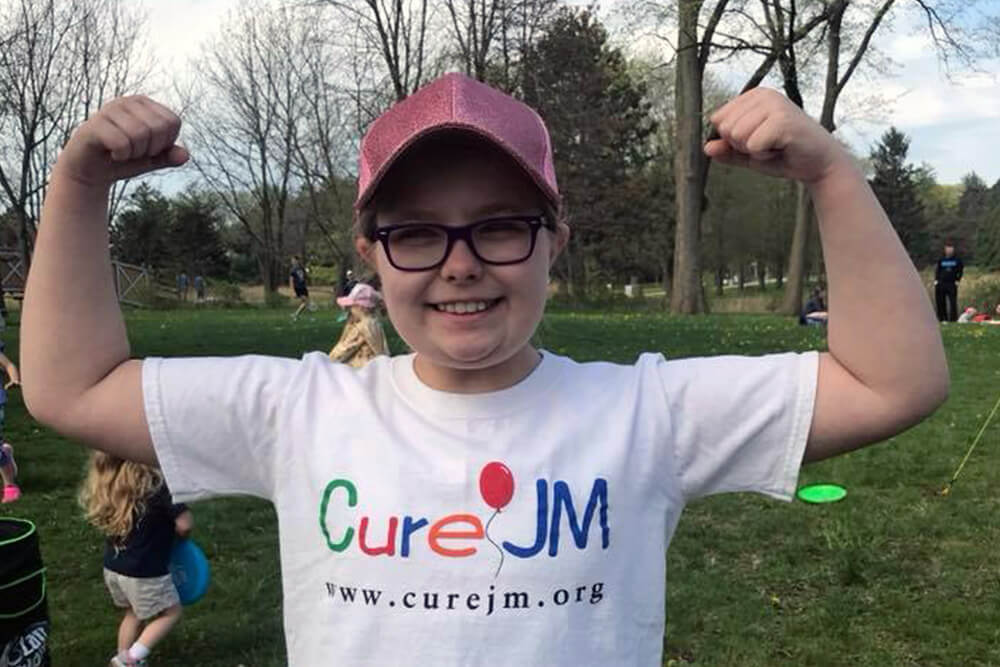
In order to understand how our families cope with mental health, we collaborated with Andrea Knight MD MSCE, an expert in the autoimmune and mental health fields.
Signs of Depression and Anxiety in Children and Teens

Kids with JDM experience depression and anxiety at 2-3 times a higher rate than their peers. We hope that by outlining the common signs and symptoms of depression and anxiety, you are better able to support your children.
Emotional and Mental Health Resources for Parents and Caregivers of Newly Diagnosed Children
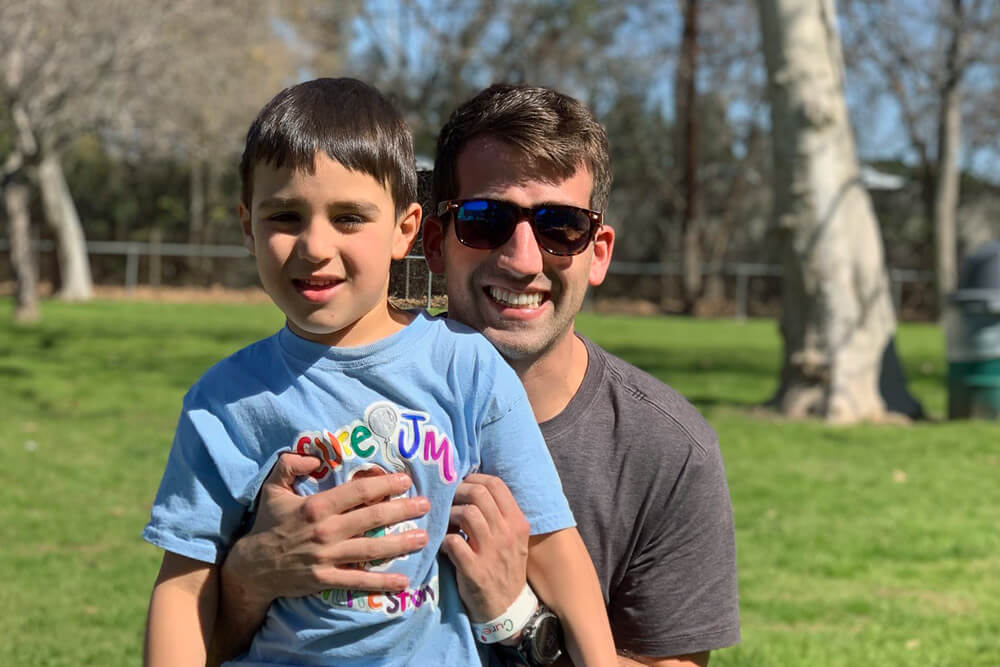
As the parent of a newly diagnosed child, you might feel overwhelmed and worried. These are normal reactions. You might want, and need support, from others who have been, or still are, on this same journey.
Resources for Patients Who Have Pain
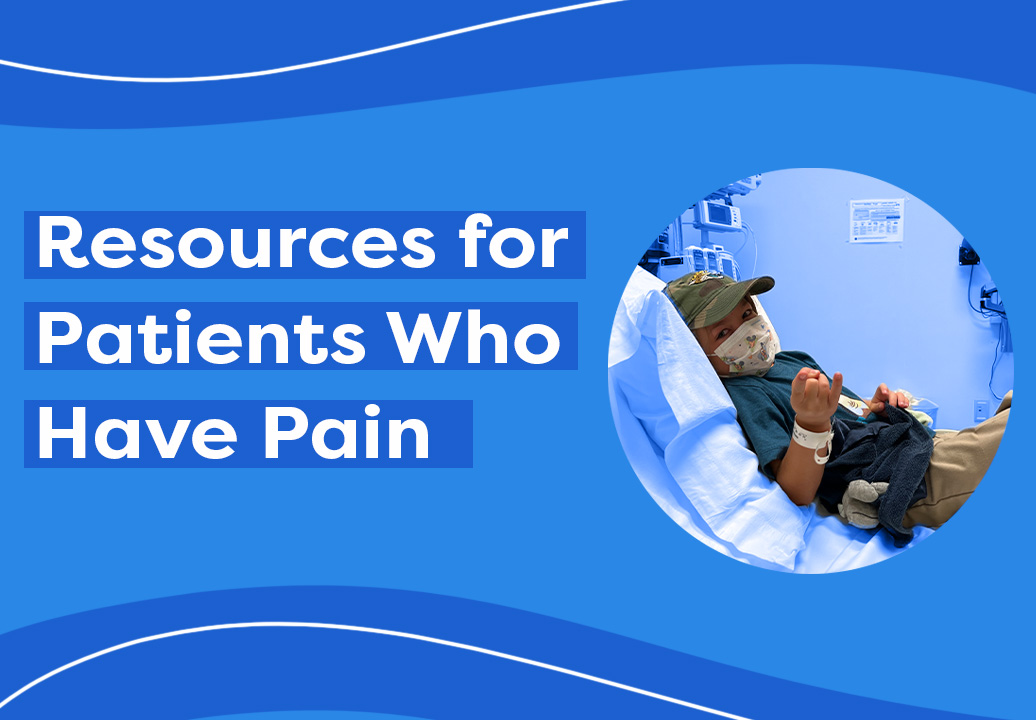
Here are some resources and recommendations for ways of addressing pain. These come from pediatric rheumatologists and other medical providers/researchers.
Products and Resources To Protect Your Child From the Sun
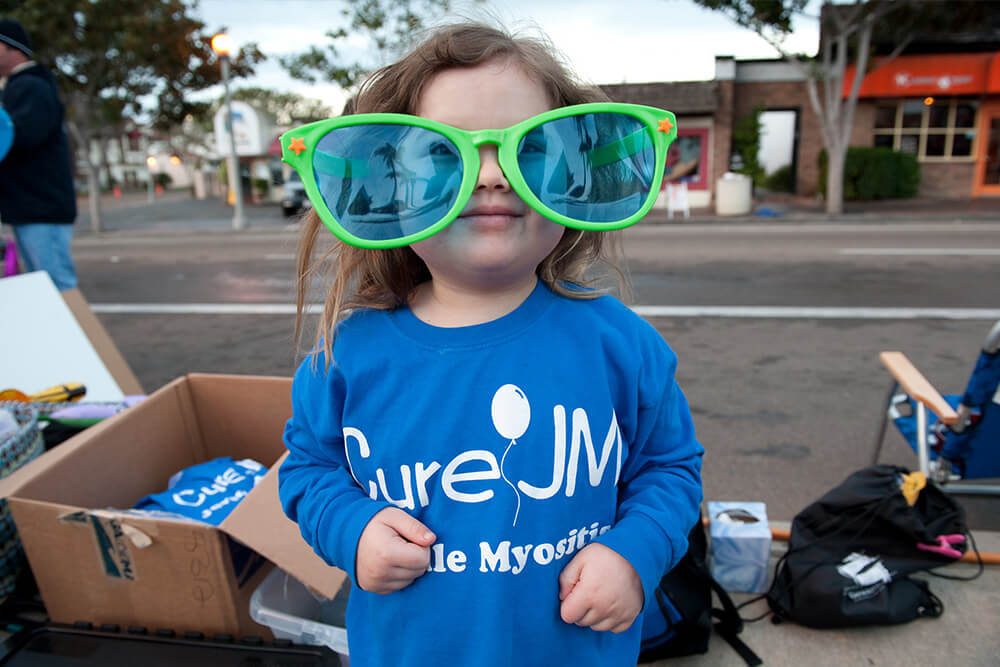
In collaboration with leading experts, we have curated a list of products that can help protect your child from the UV rays that come from the sun and even harmful artificial light.
Health Insurance Tips and Links

Tips and links for dealing with insurance claims, denials and appeals, making phone calls, changes in health care law, help with medical bills, and more.
Emotional and Mental Health Resources for Experienced Parents and Caregivers
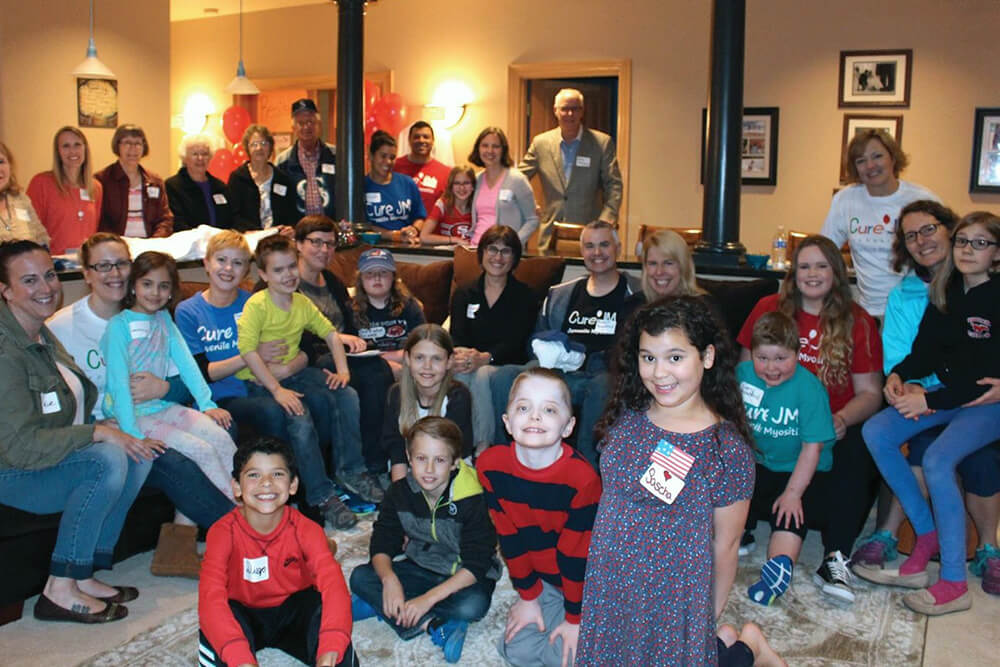
Do you know the warning signs of depression and anxiety? Has your child had a mental/emotional health assessment? Here are some resources for you, your child, and other family members.
Alex Hackney’s Story
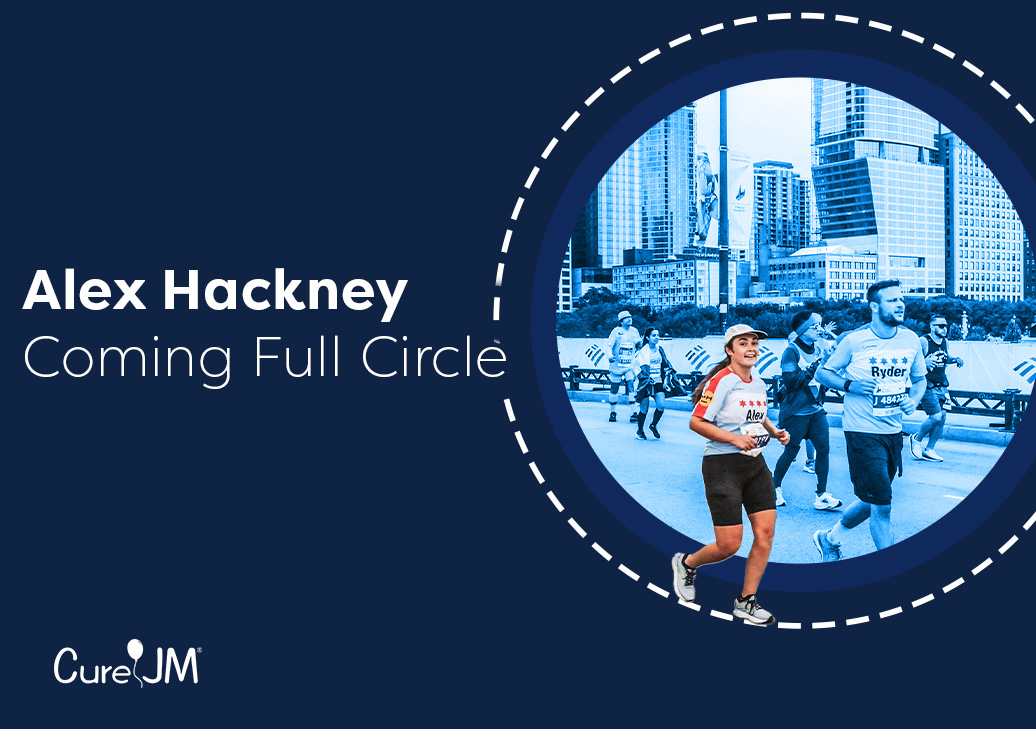
Despite battling juvenile dermatomyositis (JDM) as a child, Alex Hackney never envisioned becoming a marathon runner, let alone completing prestigious races like the Chicago and New York Marathons. With over 15 years of grappling with JDM, Alex recently completing her third marathon and found closure and perspective in Chicago.